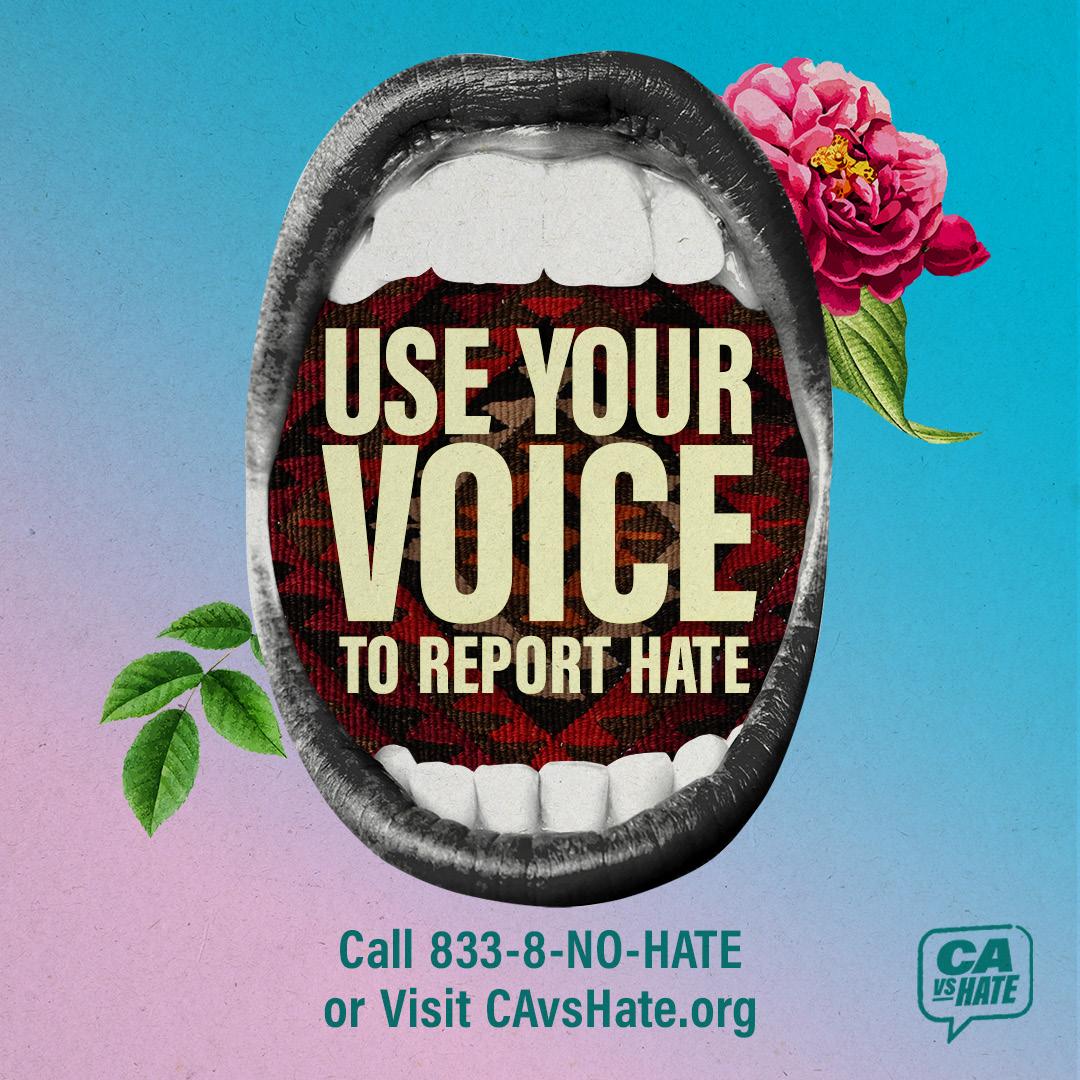






by John Ferrannini
Three of San Francisco’s queer organizations that host street fairs and parties, along with an associated nonprofit, have joined forces to form a new coalition. The new group is dedicated to “collaboration and mutual support between the events,” according to a joint Instagram post.
The formation of the San Francisco Street Fair Coalition, or SFSFC, was announced August 9. It consists of Folsom Street, the nonprofit that puts on the Folsom Street and Up Your Alley street fairs; the San Francisco LGBT Pride Celebration Committee, which puts on a festival in the Civic Center area during Pride weekend; the Castro Street Fair; and the Bay Area queer nonprofit TurnOut, which has provided volunteer management services to all three organizations in the past.
“The SFSFC is a project we’ve been working on for a little over a year and decided we were ready to formalize recently,” Angel Adeyoha, the queer and nonbinary director of Folsom Street, stated to the Bay Area Reporter. “Our three events and TurnOut joined forces to create a project that aims to support any street fair or festival that is finding it more difficult than ever to produce large scale events that our city and our communities depend on. The revitalization of the city needs to be cooperative and inclusive if we want it to be sustainable.”
The new coalition is a way San Francisco can continue its comeback from the post-COVID lockdown malaise from which city boosters are working to escape.
The three street fairs contributed $545 million in local economic impact in 2014, according to the latest economic impact study on outdoor events in the city that was done in 2015 and included in a 2022 report.
And city leaders have noticed that contribution. In April, Mayor London Breed introduced legislation to waive city fees for night markets, block parties, farmers markets and other outdoor community events.
See page 11 >>
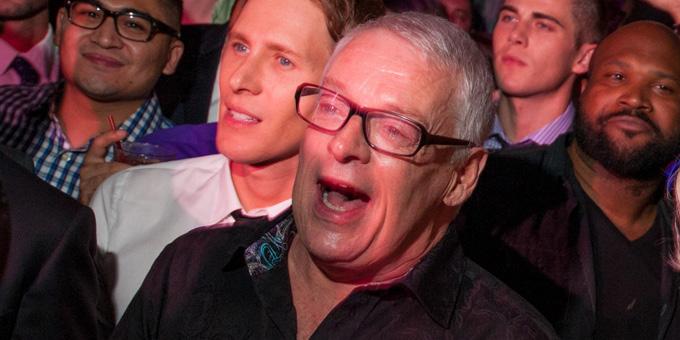


by John Ferrannini
The website of the Freedom to Marry campaign to remove anti-same-sex marriage language from the state constitution prominently went live featuring a heterosexual-appearing couple as its main image. It brought to mind the unsuccessful 2008 effort to block the same-sex marriage ban known as Prop 8 from being passed, that didn’t showcase gay or lesbian couples in its ads.
On the November 5 ballot California voters are being asked to vote yes on Proposition 3. An Assembly Constitutional Amendment, it would excise from the state’s governing document the “zombie” anti-same-sex marriage language that Proposition 8 embedded in it. Sixteen years after voters passed Prop 8, the state Legislature by a bipartisan vote last year placed Prop 3 on this year’s fall ballot.
Reached for comment August 27, Yes on 3 spokesperson Nathan Click had defended the usage of the straight-appearing couple as the lead image people see when landing at the https:// yesonprop3ca.com/ website. But Click also said it would be a good idea to switch out the photo periodically in the future when asked about doing so by the Bay Area Reporter.
“The measure does two things – it safeguards both same-sex marriage and interracial marriages in the state’s constitution, and the photos on the
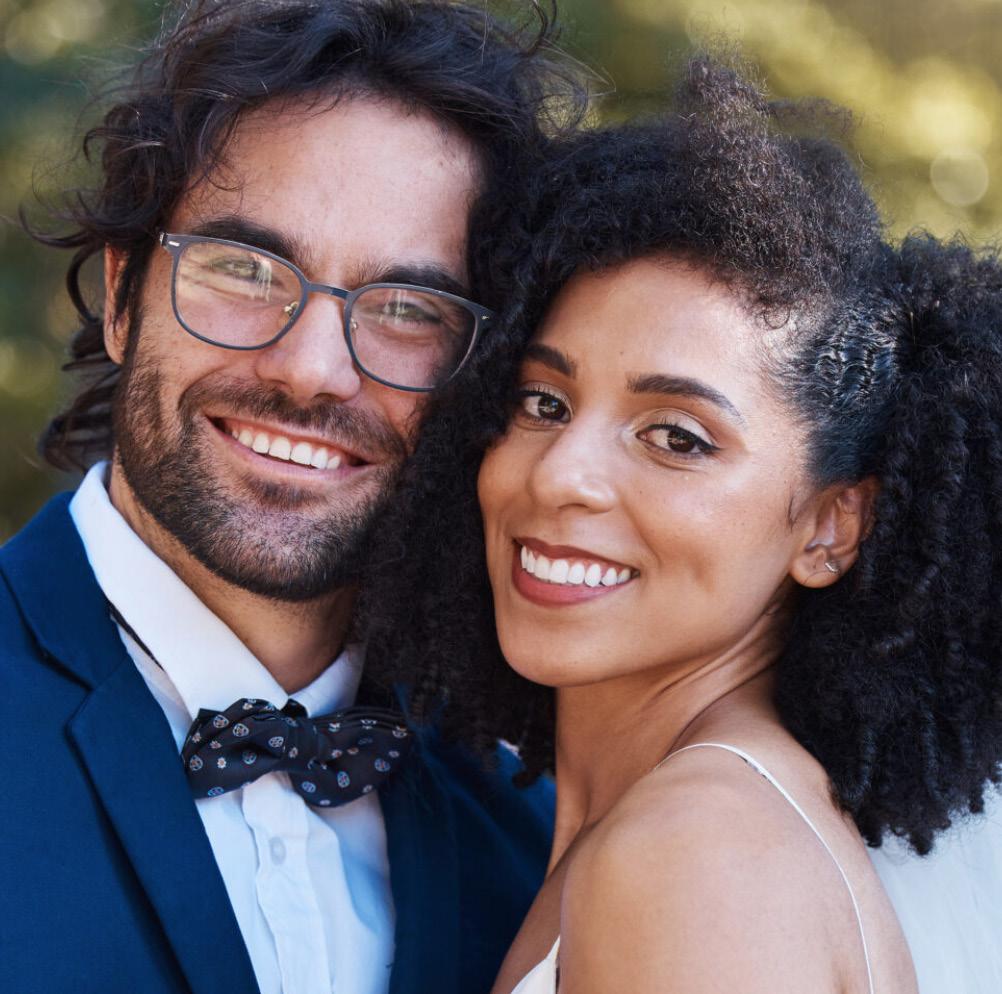

with the B.A.R., the image of the opposite-sex couple was taken down. In its place was an empty blue field. It was later replaced with a slideshow of images showing same-sex couples in addition to the opposite-sex couple.
While the text on the website says Prop 3 “will protect the fundamental right to marry, regardless of your gender or race,” the Prop 8 language had nothing to do with banning interracial marriages. As the Yes on Prop 3 website notes, “California’s Constitution retains language that ‘Only marriage between a man and a woman is valid or recognized in California.’”
Prop 8 was ultimately ruled unconstitutional in a 2013 United States Supreme Court decision. However, concerns the Supreme Court might overturn its 2015 ruling in Obergefell v. Hodges – which legalized same-sex marriage nationwide – have renewed the need for removing the Prop 8 language from the state constitution to protect same-sex marriage in California, as the B.A.R. previously reported.

website represent that,” Click said, adding that the man and woman shown are an interracial couple.
About an hour after Click spoke Tuesday with the B.A.R., the image of the opposite-sex couple was taken down. In its place was an empty blue field. About an hour after Click spoke Tuesday







by Matthew S. Bajko
Due to San Francisco school board president Lainie Motamedi resigning because of personal and health issues, San Francisco Mayor London Breed is appointing gay education official Phil Kim to serve out the remainder of Motamedi’s term through 2026. She is to swear Kim into office at an August 23 ceremony at City Hall, allowing Kim to take part in his first school board meeting August 27.



The Los Angeles Blade covers Los Angeles and California news, politics, opinion, arts and entertainment and features national and international coverage from the Blade’s award-winning reporting team. Be part of this exciting publication serving LGBT Los Angeles from the team behind the Washington Blade, the nation’s first LGBT newspaper. From the freeway to the Beltway we’ve got you covered.
In taking on the new role, Kim is resigning as of August 23 as executive director for school strategy and coherence in the superintendent’s office for the San Francisco Unified School District. He had begun in the role in January, after leaving his position as national senior director of science, technology, engineering, and math (STEM) for the public charter schools network the KIPP Foundation.
“I am excited to roll up my sleeves and ensure we continue to build a really thriving school system. Our kids deserve it,” Kim, 34, told the Bay Area Reporter during a phone interview Thursday.
Kim, who lives in the city’s Castro district, will ensure LGBTQ representation on the oversight body due to the pending departure of queer school board member Mark Sanchez. He opted not to seek reelection this November to his seat on the board.
No LGBTQ person had filed to seek one of the four school board seats that are up this year. Until Friday, Sanchez had been the lone LGBTQ person serving on the board.
“I would say, first and foremost, as both a gay identifying male, and having the relationships and community I have had been fortunate in building, it is not lost on me our schools are incredibly powerful and safe places for our youth, particularly our
That concern came from Justice Clarence Thomas’ words in a concurrence to the 2022 ruling in Dobbs v. Jackson Women’s Health Organization, which overturned the constitutional right to abortion in Roe v. Wade.
See page 10 >>

LGBTQ youth,” said Kim, who became estranged from his South Korean immigrant family due to his coming out of the closet. “You see this conversation at the national level and you see the impacts at the local level. I am really proud of the work SFUSD has done to build those safe spaces and inclusive spaces for our queer youth.”



by John Ferrannini
Vice President Kamala Harris reintroduced herself to the American people as a daughter of the Bay Area and defender of the country’s values as she accepted the Democratic nomination for president at the closing day of the party’s convention in Chicago August 22.
As expected, she included support for the LGBTQ community in her acceptance speech. While she never said the words gay or transgender, Harris voiced her support of marriage equality while listing a number of rights she vowed to protect as president.
“In this election, many other fundamental freedoms are at stake. The freedom to live safe from gun violence – in our schools, communities, and places of worship. The freedom to love who you love openly and with pride,” said Harris. “The freedom to breathe clean air, drink clean water, and live free from the pollution that fuels the climate crisis. And the freedom that unlocks all the others. The freedom to vote.”
Harris, California’s former junior U.S. senator, California attorney general, and San Francisco district attorney, also used her speech to recount her remarkable journey to this moment; she’d be the first Black woman, first South Asian, and first woman president if elected.
It was the culmination of a surprising turn of events that started just a month ago, when President Joe Biden withdrew from his reelection campaign and endorsed Harris to succeed him. She quickly gathered support, as party members rallied around her.
“It was mostly my mother who raised us,” Harris said. “Before she could finally afford to buy a home, she rented a small apartment in the East Bay. In the Bay, you either live in the hills or the flatlands. We lived in the flats, a beautiful working-class neighborhood of firefighters, nurses, and construction workers – all who tended their lawns with pride.”
Harris said it was there that she learned “community, faith, and the importance of treating others as you would want to be treated – with kindness, respect, and compassion.”
When a school friend named Wanda confided in the future vice president that she’d been sexually abused by

From C-SPAN
to Trump’s unserious Republican Party.”
“It was emphasized that much of Trump’s actions – killing their own conservative immigration bill, inciting violence on Jan. 6 [2021], and refusing to act on gun violence – is as unserious as it is dangerous,” Coleman added. “The election of Kamala Harris and Tim Walz to the White House will undoubtedly be a big leap forward for the entire country, and especially for the LGBTQ community.”
Walz, the Democratic governor of Minnesota, was selected by Harris to be her vice presidential running mate. He gave his own powerful acceptance speech August 21.
She was clear and precise with her delivery, and presidential.”
Honey Mahogany, a Black queer trans delegate who until earlier this year was chair of the San Francisco Democratic Party, stated August 22 that “there is clearly a lot of love in the house, and we are excited to see VP Harris become our first woman president.”
Mahogany is now the director of the San Francisco Office of Transgender Initiatives.
LGBTQs, Californians make their case for Harris
her stepfather, Harris offered Wanda to come live with her. It was that moment that inspired Harris to become a prosecutor, she said.
“Every day in the courtroom, I stood proudly before a judge and I said five words: ‘Kamala Harris, for the people,’” Harris said. “And to be clear –and to be clear, my entire career, I’ve only had one client: the people.”
Harris contrasted her experience with former president and Republican nominee Donald Trump.
“Just imagine Donald Trump with no guardrails,” Harris said. “And how he would use the immense powers of the presidency of the United States not to improve your life, not to strengthen our national security, but to serve the only client he has ever had: himself.”
Harris, a longtime advocate for LGBTQ rights, promised to protect “the freedom to love who you love openly and with pride.” She also pledged support for voting rights reform, the bipartisan border deal scuttled by Republicans earlier this year, a pathway to citizenship for undocumented immigrants, codifying Roe v. Wade, and largely continuing Biden’s foreign policy.
“I will never hesitate to take whatever action is necessary to defend our forces and our interests against Iran and Iran-backed terrorists,” she said. “I will not cozy up to tyrants and dictators like Kim Jong Un, who are rooting for Trump – who are rooting for Trump because, you know, they know – they know he is easy to manipulate with flattery and favors. They know Trump won’t hold autocrats account-
able because he wants to be an autocrat himself. … I know where I stand and I know where the United States belongs.”
Harris’ speech was widely praised by LGBTQ delegates and others from the Bay Area who were in attendance. The Bay Area Reporter has been following their convention journeys.
Lesbian Carolyn Wysinger, an El Cerrito city councilmember and convention delegate, stated in an email to the B.A.R. August 20 that “as a Black LGBTQ working class woman who was raised in the Bay Area by a single mother, nothing will top seeing a Black woman accept the nomination of a major party for president. A Black woman from Oakland took the most unlikely of paths to gain the support of the entire Democratic Party and has the chance to hold the highest office in the land.”
Wysinger, one of only a handful of LGBTQ Black female officeholders in the Bay Area, added that this contrasts with those who’ve told her Black women aren’t electable.
“The political community of the Bay Area and beyond is always telling Black women, you talk too much, you are too aggressive, you can’t raise money and every other reason they can think of to remind us we aren’t electable,” Wysinger stated. “Instead our entire party coalesced behind a Black woman and she WILL become the 47th President of the United States.”
Bisexual delegate South San Francisco Mayor James Coleman praised Harris’ speech.
He wrote in an email that Harris “portrayed herself as a strong, capable, and empathetic candidate, as opposed
Perhaps the most memorable part of his remarks was the reaction of his 17-year-old son, Gus, applauding in the audience and yelling, “That’s my dad!” Gus is neurodivergent and his parents have talked about what they call his “superpower.”
“Hope, Gus, and Gwen, you are my entire world and I love you,” Walz said to his children and wife after discussing fertility issues solved by use of treatments.
“I’m letting you in on how we started a family because this is a big part about what this election is about: freedom,” Walz added. “When Republicans use the word freedom, they mean that the government should be free to invade your doctor’s office. … But when we Democrats talk about freedom, we mean the freedom to make a better life for yourself and the people that you love.”
A video introducing Walz said that when he was a teacher and football coach, he elected to be faculty adviser to the school’s gay-straight alliance as a way to combat prejudice.
A powerful moment just before Walz took the stage was the emergence of members of the high school football team he coached to a state championship – complete with the men wearing their old jerseys.
Nancy Tung, current chair of the San Francisco Democratic Party and a former colleague of Harris’ at the DA’s office, stated to the B.A.R. August 23 that she “thought the vice president’s speech brought home all of the themes that were woven through the last four days – hope, optimism, kindness, the importance of character, and how she will work for the American people.
Local and LGBTQ politicians made their mark in the closing days and hours of the convention.
Lateefah Simon, a longtime friend of Harris’ who’s on the BART Board of Directors and is running to represent Oakland in the U.S. House of Representatives, was given a prime-time speaking slot August 21.
“I saw Kamala Harris holding the hands of sexual-assault survivors,” Simon, an ally, said. “I saw scores of mothers who lost their babies to gun violence, lining up day after day at the courthouse, waiting only to speak to Kamala because they knew that she would hear them. She hears your story, she carries it with her. When she sees you, she truly sees you.”
So, too, was Pete Buttigieg, a gay man who is currently secretary of transportation after his surprising run for the Democratic presidential nomination four years ago. He ripped into GOP vice presidential nominee JD Vance’s comments that people without children don’t have a “physical commitment to the future of this country.”
“When I deployed to Afghanistan, I didn’t have kids then, many of the men and women who went outside the wire with me didn’t have kids either,” Buttigieg said. “But let me tell you, our commitment to the future of this country was pretty damn physical.”
Tung stated that she “really appreciated Buttigieg’s speech and the way he discussed an optimistic future for America” and “got a little choked up.”
“It was particularly poignant,” Tung stated, when he said, “‘And yet, the makeup of our kitchen table, the existence of my family, is just one example of something that was literally impossible as recently as 25 years ago,
See page 10 >>
by John Ferrannini
Aprogressive San Francisco LGBTQ club that had rescinded its endorsement of President Joe Biden in the Democratic primary over the Israel-Hamas war is endorsing Vice President Kamala Harris for president in the November 5 general election.
The Harvey Milk LGBTQ Democratic Club’s endorsement of Biden was rescinded January 22 and, at the time, it was stated in a news release it wouldn’t necessarily apply to his November match-up against Republican nominee Donald Trump. Then came Biden’s stunning decision last month to end his candidacy, leading to Harris becoming the Democratic presidential nominee.
With Harris in Chicago last week to formally accept the nomination at the Democratic National Convention, Milk club members voted during their August 20 meeting to back her presidential bid. Asked by the Bay Area Reporter what the percentage of the vote in support of doing so was, Milk club president Jeffrey Kwong answered “overwhelmingly.”
“The reality is that we are electing a president for the whole of the U.S. and we need a proven progressive leader like Kamala Harris,” said Kwong, a gay man, in a phone interview. “We know we don’t align 100% with Kamala, but that is true of every candidate, and
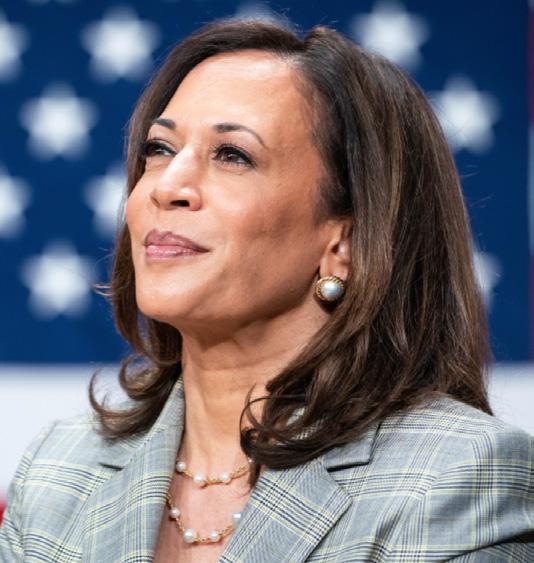
the membership has overwhelmingly voted to endorse Kamala.
Ahead of the meeting, the club’s political action committee had recommended endorsing Harris and her vice presidential running mate, Minnesota Governor Tim Walz.
“As a Democratic club, we want to make sure we elect Democrats ultimately and, at the same time, do everything we can to hold her accountable and make sure that we lobby for language that reflects the views of San Franciscans that, I think, overwhelmingly believe there is an unjust genocide in Palestine,” Kwong added.
The city’s more moderate Alice B. Toklas LGBTQ Democratic Club also endorsed the Harris-Walz ticket. And in a sign of how Harris has been able to secure considerable support from progressives who were less enthusiastic about Biden, the San Francisco League of Pissed Off Voters also endorsed Harris, the only candidate for federal office on the city ballot to receive its backing.
Biden won the Democratic primaries with only token opposition before dropping out last month and passing the torch to Harris, a known quantity in San Francisco from her time as district attorney, state attorney general, and California’s junior U.S. senator.
The club previously decided to again endorse gay state Senator Scott Wiener (D-San Francisco) as he seeks reelection this year. With the Jewish lawmaker a vocal defender of Israel, some Milk club members had called for stripping him of its support for his candidacy.
The Israel-Hamas war began on October 7, when Hamas brigades broke out of the Gaza Strip and killed 1,139 people in Israel in the worst massacre of Jews since the Holocaust. Since then, Hamas has been holding Israelis who were abducted as hostages in Gaza. (The number of hostages still being held is 109 as of press time, after the Israeli military recovered the bodies of
six hostages, the Guardian reported.)
Israel responded to the Hamas attack with an extensive bombing campaign in Gaza, and a ground invasion with the stated goal of destroying Hamas. That has led to the deaths of over 40,000 Palestinians, according to Gaza’s health ministry.
The U.S. provides billions of dollars in military aid to Israel annually.
The Biden administration has faced pressure from some Democrats and protesters to cut off that aid, or make it conditional on a ceasefire.
(The Milk club’s January news release criticizing the Biden administration did denounce the Hamas attacks.)
Biden and Harris – dogged by protests accusing them of being complicit in Israel’s actions, which opponents have characterized as a genocide –have been working for a ceasefire and hostage deal. Hamas rejected a U.S. proposal just days ago.
Despite the protests, the Democratic National Convention voted to support the administration’s policy in the party’s platform August 19, as the B.A.R. reported. The platform states that Biden and Harris’ “commitment to Israel’s security, its qualitative military edge [and] its right to defend itself” is “ironclad.” It also states “President Biden and Vice President Harris recognize the worth of every innocent life, whether Israeli or Palestinian.”
Asked why the club changed its position at its endorsement meeting, longtime club member and lesbian activist Gwenn Craig told the B.A.R. in a phone interview that Harris has taken a different tact herself from her boss –threading a difficult needle.
Craig, a Black woman and former Milk club president, said she couldn’t speak to the club’s decision per se – she “wasn’t at the endorsement meeting” and thus didn’t “have a real sense of how people are feeling,” she said – but she noted that after Harris met with Israeli Prime Minister Benjamin Netanyahu, the vice president was “much more assertive” than Biden had been.
“It was a much firmer position,” Craig said.
Harris said, about innocent civilians being killed, that “we cannot look away in the face of these tragedies. We cannot allow ourselves to become numb to the suffering. And I will not be silent.”
Craig was also heartened that Harris met with pro-Palestine activists, and that this year’s DNC had the party’s first-ever panel on Palestinian rights.
“They felt there was an opening there they hadn’t felt before with the Biden administration,” Craig said. “You just have a feeling she has a more empathetic approach toward what’s happening with the mounting death toll in Palestine.”t
by Brian Bromberger
From the get-go, Neil J. Young’s “Coming Out Republican: A History of the Gay Right” makes it manifestly clear that gay Republicans face condemnation both from the queer community and their own political party, which never has fully accepted them. Young, who is gay, is a political historian, commentator, and co-host of the history podcast “Past Present.”
His book is the first comprehensive and sympathetic history of the gay right, which he traces from the 1950s up to the present day. Young views gay GOPers as champions of conservative values (i.e. free markets, a strong national defense, and individual liberty) and believed the Republican Party offered LGBTQ+ people the best pathway to freedom. The book uses profiles of key individuals to depict the eras in which they lived.
Young starts with Dorr Legg, a libertarian Republican who founded ONE magazine, the first homophile periodical producing positive portrayals of homosexuality. Legg created a “Homosexual Bill of Rights,” which demanded civil equality and that initially scared off leftist gay activists, though they would advocate for it after the Stonewall uprising in 1969. There were Marvin Liebman and Robert Bauman, pushing conservative agendas in the 1960s and 1970s while hiding their homosexuality. They created Young Americans for Freedom and the American Conservative Union. Both were very close associates of William F. Buckley Jr., considered the “granddaddy of modern American conservatism.” Bauman was elected to Congress in 1973 becoming a Republican leader by decade’s end. In 1980, he was arrested by the FBI for soliciting a 16-year-old sex worker. However, both men later in life came out publicly and advocated for gay Republicans.

There were a handful of LGBTQ Republican clubs that arose in the late 1970s, mostly in California. The largest and most powerful one was in Los Angeles. In the early 1990s it linked up with other gay Republican groups to form the national Log Cabin Republicans, overseen by a national office in Washington, D.C., which now counts some 10,000 members in more than 60 chapters in 34 states.

Young, 48, was interviewed by the Bay Area Reporter via email. He was asked why he was inspired to create this book.
“I’ve had the idea to write this book for a very long time. I’m not a Republican – I’ve been a registered Democrat for more than two decades – but I grew up in a Republican family and have focused much of my career on the history of conservatism,” he wrote.

Still some critics have been surprised that a non-Republican would write this book, which was published by University of Chicago Press ($30).
“I’m not sure what has generated that surprise for you and others. Is it an assumption that only a gay Republican would write a history of gay Republicans? Or is it because of the book’s tone?” he asked. “Some people have told me they were surprised that my book presented gay Republicans more positively than they expected.
“I can understand that. It surprised me too, I have to say,” he stated. “But I think it’s important for me to note that I didn’t approach writing this book by thinking of myself as a ‘non-Republican.’ Instead, I wrote it as what I am when I do a project like this – a historian who takes a sort of scholarly objectivity towards my subjects, to the extent that is possible. And I think my tone, especially in the first half of the book, reflects the admiration I felt for so many of the people I’m writing about, even if I don’t share their politics.”
the huge role San Francisco played in the development of gay Republicans.
“San Francisco is the birthplace of an organized gay Republican movement,” stated Young. “This was a fact that surprised me to discover, but one that started to make sense as I dug into my research. In 1977, the first two gay Republican organizations ever formed were launched in San Francisco. One of them, the Teddy Roosevelt Republican Club, didn’t last very long. But the other group, called Concerned Republicans for Individual Rights, continues to this day, now known as Log Cabin Republicans of San Francisco.
“These clubs were formed primarily to defeat Proposition 6, or the Briggs initiative as it was more popularly known, which was a ballot initiative in the 1978 election that, had it passed, would have made it illegal for any gay or lesbian to work in California’s public school system,” Young wrote. “Gay Republicans came together in San Francisco – and also in Los Angeles –to form the first gay Republican clubs to defeat the Briggs initiative and to push back against the growing influence of religious conservatives in the Republican Party.”
Not surprisingly, Republican leaders in San Francisco were very worried about how poorly their party was faring here.
posed of white, cisgender men with very few lesbians or people of color.
“The first clubs grew primarily through friendship networks and word of mouth, so that tended to keep the groups looking like the people who already belonged to them: middle- and upper-class gay white men,” Young stated. “The clubs constantly talked about needing to grow their ranks by bringing in lesbians and people of color, but none of them ever put actual effort into making this happen. I think that reflects the conservatism of these groups, both a lack of commitment to diversity in principle and a limited sense of who belonged.”
Gay GOPers failed to reach out
Young notes few lesbians or people of color wanted to join these groups because they were perceived as clubs for white gay men rather than for gay Republicans.
In 1975, Republican Leonard Matlovich, a Vietnam War hero, came out and sued the federal government after he was thrown out of the military. A resident of a building at the corner of 18th and Castro streets in San Francisco’s LGBTQ neighborhood, Matlovich became the first gay man to appear on the cover of Time magazine. Then there’s Terry Dolan, a pollster for Ronald Reagan and head of the National Conservative Political Action Committee, who later died of AIDS-related complications.
“I had the experience that I think a lot of LGBTQ folks who grew up in conservative families have had: You go off to college, come out of the closet, develop your own politics, and don’t think much more about it. But after college, I moved to New York City and started to meet some guys who were gay Republicans and belonged to an organization I had never heard of – Log Cabin Republicans,” Young added. “This was during the George W. Bush presidency, and it was perplexing to me at the time how any LGBTQ person could belong to the GOP, especially with the Bush administration opposing same-sex marriage and the religious right having fully taken control of the Republican Party. So, I started keeping tabs on gay Republicans and paying attention to the work of LCR.”
Young appreciated the bravery of men like leatherman Duke Armstrong, Legg, and Matlovich. In 2008, friends of Matlovich’s installed a plaque on the San Francisco building he once called home.
“They showed in coming out of the closet, challenging law enforcement, the military, and the Republican Party, and fighting for their rights and standing up for their principles. And especially in those decades I’m writing about where the Democratic Party wasn’t much better on gay rights than the Republicans were,” stated Young. “It became easy to understand their argument that in order for gay rights to advance, they needed to work within the party they belonged to and believed in to make things better.”
San Francisco’s role
Readers will be stunned to discover
“Voter registration in San Francisco weighed heavily in favor of the Democratic Party, and Democrats had a big majority in the city’s public offices,” stated Young. “San Francisco’s Republican leaders believed that its gay and lesbian residents were an untapped potential and they also hoped that if gay Republicans had prominence and visibility in the city, it would help attract moderate voters to the GOP. That didn’t really work, but it was the motivation behind the local GOP giving support to these clubs being formed.”
Another shocker was how many of these early gay Republicans were heavily involved in the city’s BDSM community.
“Much of that participation owed to the influence of Duke Armstrong, who was president of CRIR in the early 1980s. Armstrong was very active in San Francisco’s leather scene and recruited several of his friends from there to join the group,” stated Young. “These guys tended to also be business professionals – Armstrong was a lawyer who owned his own small firm – and they held fiscally conservative economic views that aligned them with the organization and the Republican Party.”
It became clear that almost all these gay Republican groups were com-
“Women, especially, complained about being overlooked, ignored, and dismissed in many of the clubs. These local chapters were social outlets as much as they were political organizations – a place for gay Republican men to meet and hang out with each other without fear of judgment about their politics,” stated Young. “But that meant that many of the men weren’t very welcoming to women being among them. Although, notably, several of the clubs were led by lesbians. Apparently, the gay membership didn’t mind if sometimes a woman took over the thankless job of running the organizations.”
Young argues that having so few lesbians and people of color shaped the politics of these groups, particularly around issues like affirmative action, immigration, and abortion.
“It seems obvious, from my view, that gay Republicans should have formed alliances with other moderate Republican organizations and constituencies like pro-choice women and Black and Brown Republicans in order to have a bigger voice within the GOP and form a coordinated bloc against the religious right forces,” Young stated. “But gay Republicans never did so, even as they failed to attract lesbians and persons of color to their organizations. Instead, they refused to take a public stance on abortion, opposed affirmative action and public assistance, and often backed harsher sentencing legislation and anti-immigration policies. In all these ways, their politics reflected their whiteness and maleness, and they often used these identities, rather than


Volume 54, Number 35 August 29September 4, 2024 www.ebar.com
PUBLISHER
Michael M. Yamashita
Thomas E. Horn, Publisher Emeritus (2013)
Publisher (2003 – 2013)
Bob Ross, Founder (1971 – 2003)
NEWS EDITOR
Cynthia Laird
ARTS & NIGHTLIFE EDITOR
Jim Provenzano
ASSISTANT EDITORS
Matthew S. Bajko • John Ferrannini
CONTRIBUTING WRITERS
Christopher J. Beale • Robert Brokl
Brian Bromberger • Victoria A. Brownworth
Philip Campbell • Heather Cassell
Michael Flanagan •Jim Gladstone
Liz Highleyman • Brandon Judell • Lisa Keen
Philip Mayard • Laura Moreno
David-Elijah Nahmod • J.L. Odom • Paul Parish
Tim Pfaff • Jim Piechota • Adam Sandel
Jason Serinus • Gregg Shapiro
Gwendolyn Smith • Charlie Wagner
Ed Walsh • Cornelius Washington • Sura Wood
ART DIRECTION
Max Leger
PRODUCTION/DESIGN
Ernesto Sopprani
PHOTOGRAPHERS
Jane Philomen Cleland
Rick Gerharter • Gooch
Jose A. Guzman-Colon • Rudy K. Lawidjaja
Georg Lester • Rich Stadtmiller
Christopher Robledo • Fred Rowe
Shot in the City • Steven Underhill • Bill Wilson
ILLUSTRATORS & CARTOONISTS
Christine Smith
VICE PRESIDENT OF ADVERTISING
Scott Wazlowski – 415.829.8937
NATIONAL ADVERTISING REPRESENTATIVE
Rivendell Media – 212.242.6863
LEGAL COUNSEL
Paul H. Melbostad, Esq.


Bay area reporter
44 Gough Street, Suite 302
San Francisco, CA 94103
415.861.5019 • www.ebar.com
A division of BAR Media, Inc. © 2024
President: Michael M. Yamashita
Director: Scott Wazlowski
News Editor • news@ebar.com
Arts Editor • arts@ebar.com
Out & About listings • jim@ebar.com
Advertising • scott@ebar.com
Letters • letters@ebar.com
Published weekly. Bay Area Reporter reserves the right to edit or reject any advertisement which the publisher believes is in poor taste or which advertises illegal items which might result in legal action against Bay Area Reporter. Ads will not be rejected solely on the basis of politics, philosophy, religion, race, age, or sexual orientation.
Advertising rates available upon request.
Our list of subscribers and advertisers is confidential and is not sold. The sexual orientation of advertisers, photographers, and writers published herein is neither inferred nor implied. We are not responsible for unsolicited manuscripts or artwork.
Two years ago, after the U.S. Supreme Court overturned the right to abortion in Roe v. Wade, Justice Clarence Thomas wrote in a concurring opinion about possibly having the court review other precedents, like same-sex marriage. LGBTQ political leaders in California became alarmed and began working on a measure to excise from the state constitution the anti-same-sex marriage language in Proposition 8, which was passed by voters 16 years ago. That constitutional amendment is now here – Proposition 3 – and voters will decide on it November 5.
Back then, we editorialized about what samesex marriage advocates needed to do should there be another ballot fight. After all, we lost the Proposition 8 initiative in 2008, which got us into this mess in the first place. Thankfully, the courts invalidated Prop 8, though the “zombie” language remains – and that is what Prop 3 will remove.
At the top of that list was the need for any future marriage equality campaign to center same-sex couples and LGBTQ people, which the Prop 8 opponents failed to do. So imagine our surprise when we visited the official Yes on Prop 3 website (https://yesonprop3ca.com/)
Tuesday morning and found a picture of an opposite-sex couple as the main image. It appears the new Prop 3 campaign had learned nothing from the mistakes of the old No on 8 campaign – and there were plenty of those, as many readers will recall. (The image was removed from the site about an hour after we called to inquire about it, then replaced with a slideshow of same-sex couples with the oppositesex couple included.)
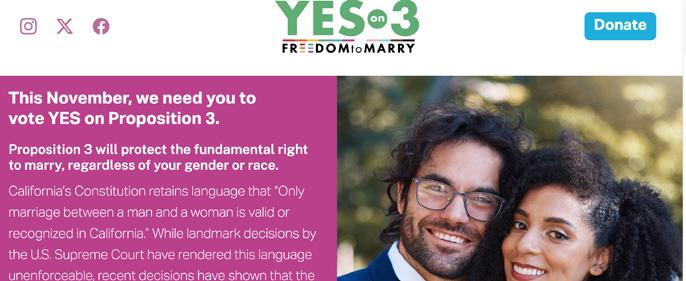
tent. But fundamentally, Prop 3 is about ridding the state constitution of the words “only marriage between a man and a woman is valid or recognized in California.”
The campaign website should have had prominent images of a smiling same-sex couple at the top to begin with; interracial ones would have been even better. It’s as though we’re being made invisible in our own campaign that LGBTQ leaders called for in the first place.
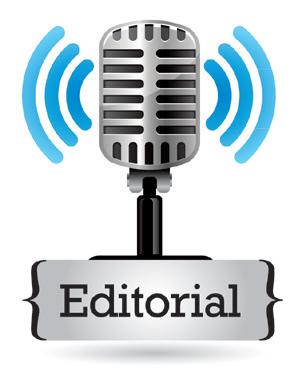
“We cannot emphasize enough that any campaign to repeal Prop 8 needs to center LGBTQ people and same-sex couples – and that means all kinds of queers and couples, not just white ones,” we wrote in July 2022. “The need for allies to speak out in support is great – and necessary – but we need queer couples and families to be front and center in the TV ad blitz, which would be essential to victory.”
for president. But all that was true in 2008 when Barack Obama was the presidential candidate – he won while same-sex marriage lost. A lot of things have changed in the Golden State since then, but even now, homophobes and transphobes are fighting Pride flags and gender-affirming care right here. The Bay Area itself is not immune. Just look at the recent recall of two Sunol school board members in the East Bay after they promoted antiLGBTQ policies. (One is actually seeking election to his old seat in November.)
Speaking of Harris, the only reference she made to the LGBTQ community during her Democratic convention speech last week was an anodyne nod to same-sex marriage. “... The freedom to love who you love openly and with pride ...,” she said. You would think with her history supporting marriage equality – including her decision not to defend Prop 8 when she was state attorney general and making her now-famous call to the Los Angeles County Clerk’s office the day weddings resumed in 2013, telling staff “you must start marriages immediately” – that we would have rated a bit more in her remarks.
Campaign spokesperson Nathan Click initially told us that the image of the heterosexualappearing interracial couple was meant to convey that Prop 3 is also about preserving the right to marry regardless of race. And that is true to an ex-
Prop 3’s main proponents – Equality California, Planned Parenthood Affiliates of California, and the American Civil Liberties Union of Northern California – need to highlight the necessity of the measure as it relates to same-sex marriage.
And Prop 3 proponents cannot sit around and think passage is assured. Yes, California is a deep blue state and, yes, it will vote for Kamala Harris
Click, the Yes on 3 spokesperson, formerly worked in Governor Gavin Newsom’s office. He, of all people, should know the importance of the marriage equality fight. Newsom helped start it when he was San Francisco mayor and 20 years ago ushered in the “Winter of Love” ordering city officials to issue marriage licenses to same-sex couples. Newsom himself was in San Francisco two months ago to kick off the Northern California campaign for Yes on 3. He said then that he would do “whatever I can do” to help the constitutional amendment pass. Click should take up his old boss on the offer, of course. But he also needs to start enlisting same-sex couples to be the public face of the campaign.
by
Brian Springfield, Jeffrey Kwong, Mawuli Tugbenyoh, and Olivia Parker
San Francisco stands as a beacon of diversity and inclusion, largely due to its vibrant and resilient LGBTQ+ community. As we look to this November’s election, Proposition B emerges as a pivotal measure deserving our full support. This proposition, a $360 million bond measure, seeks to secure funding for important city projects, including two critical ones for the LGBTQ+ community: $25 million for the revitalization of Harvey Milk Plaza and $27 million for the relocation and expansion of services of the San Francisco City Clinic, which is currently located in the South of Market neighborhood. Both are indispensable to the well-being of the LGBTQ+ community, and their success depends on our collective advocacy and commitment through our vote.
Harvey Milk Plaza:
A symbol of progress and hope Harvey Milk Plaza, named after the first openly gay elected official in California, is more than a transit hub; it can become a living monument to the progress and struggles of the LGBTQ+ community. Milk’s legacy of courage and advocacy continues to inspire gen erations of people all over the world. Yet, the plaza, in its current state, fails to reflect the dignity and significance of his contributions and the enduring importance of the civil rights movement centered in the Castro neighborhood. The proposed redesign aims to transform the plaza into a vibrant, inclusive public space that honors Milk’s memory and serves as a sanctuary for reflection and celebration; a place where the movement can continue.

heritage and a deeper sense of belonging for all members of the LGBTQ+ community.
SF City Clinic:
A pillar of health and wellness

The project includes a significant overhaul of the existing infrastructure, ensuring accessibility and safety while creating a space rich in meaning and vibrant with LGBTQ+ cultural expression. The new design will feature an expanded gathering space, green areas, enhanced lighting, and interactive elements that narrate Milk’s story and the broader LGBTQ+ struggle for rights and recognition. By investing in this transformation, we not only preserve our history but also create a welcoming space for both residents and visitors, fostering a deeper understanding of LGBTQ+
Equally crucial is the SF City Clinic, which has been a cornerstone of LGBTQ+ health care since its establishment. The clinic provides essential health services, including sexual health screenings, treatment, and education, primarily serving populations that are often marginalized and underserved. In an era where health care access is increasingly threatened, the SF City Clinic stands as a bulwark against the tide of inequality, offering compassionate and comprehensive care regardless of one’s socioeconomic status. While it does not serve the LGBTQ+ community exclusively, many community members rely on the SF City Clinic for their health services. We stand with them in calling for better access to these services, especially for those who are un- or under-insured.
Prop B will allocate necessary funds to relocate and modernize the clinic’s facilities, expand its services, and enhance its outreach programs. This investment is not just about maintaining the status quo; it is about expanding the clinic’s capacity to meet the evolving needs of the community. With better resources, the SF City Clinic can improve patient outcomes, reduce the spread of infectious diseases, and provide critical support for mental health and substance use disorders. In doing so, it will continue to be a lifeline for many in the LGBTQ+ community, ensuring that health disparities are addressed with urgency and empathy.
The broader impact of Prop B
Supporting Prop B is not merely an act of solidarity with the LGBTQ+ community; it is a commitment to the values of equality, health, and justice that define San Francisco. The investments in Harvey Milk Plaza and the SF City Clinic represent a dual opportunity: to honor our past and to secure a healthier, more inclusive future. By voting in favor of this measure, we reaffirm our dedication to creating spaces that celebrate diversity and institutions that serve with compassion and excellence.
Moreover, the economic benefits of these projects cannot be overlooked. The construction and subsequent activation of Harvey Milk Plaza will generate jobs and stimulate local businesses, contributing to the Castro neighborhood’s economic vitality and celebrating its identity as an LGBTQ+ destination. Similarly, a well-funded SF City Clinic can reduce longterm health care costs by preventing disease and promoting wellness, which benefits the broader community and alleviates strain on emergency services.
A call to action
As we approach the November 5 election, it is crucial to amplify our voices in support of Prop B, which needs two-thirds support from voters. Talk to your friends and neighbors, participate in community forums, and share information about the significance of these projects online and in person. Make your voices heard! Together, we can ensure that San Francisco continues to lead by example, demonstrating how a city can honor its LGBTQ+ community by investing in its health and well-being.
In supporting Prop B, we take a stand for the values that define us as a community. Let us seize this opportunity to honor Harvey Milk’s legacy and fortify the health and dignity of all who call San Francisco home. Vote YES on Prop B and help build a brighter, more inclusive future for everyone.t
Brian Springfield, a gay man, is executive director of the Friends of Harvey Milk Plaza. Jeffrey Kwong, a gay man, is president of the Harvey Milk LGBTQ Democratic Club. Mawuli Tugbenyoh, a gay man, and Olivia Parker, a lesbian woman, are co-chairs of the Alice B. Toklas LGBTQ Democratic Club.
by Matthew S. Bajko
Four years ago when he sought his City Council seat, gay Pinole resident Devin Murphy was facing the prospect of having to campaign amid the COVID pandemic when most inperson activities were curtailed. Then came the filing deadline that August when Murphy and another person were the only ones to seek the two council seats up that fall.
Thus, they were assured of winning. Now seeking a second, four-year term Murphy is facing a contested election. Three people, including the other council member elected in 2020 and a city planning commissioner, filed to run for the two seats up this year.
“I am confident in the work I have done and confident in the relationships I have built,” Murphy, 31, told the Bay Area Reporter during a recent phone interview about his candidacy. “I still have got to do the work and go door to door and continue to listen to my constituents.”
The East Bay city of nearly 20,000 people elects its five council members citywide. If Murphy wins his race, he will be able to seek a third term in 2028 and then must cycle off the council in 2032 under Pinole’s term limit rules before standing for election again.
“It has been literally the time of my life. I have been able to focus on issues that matter to so many people in Pinole,” Murphy said of the last four years.
Murphy, who grew up in San Francisco’s predominantly African American Bayview neighborhood, is one of a handful of LGBTQ Black elected leaders in the Bay Area. In December 2022 Murphy took over his city’s ceremonial mayor position for a yearlong term, becoming the first Black person, gay person, and youngest person to serve in the role.
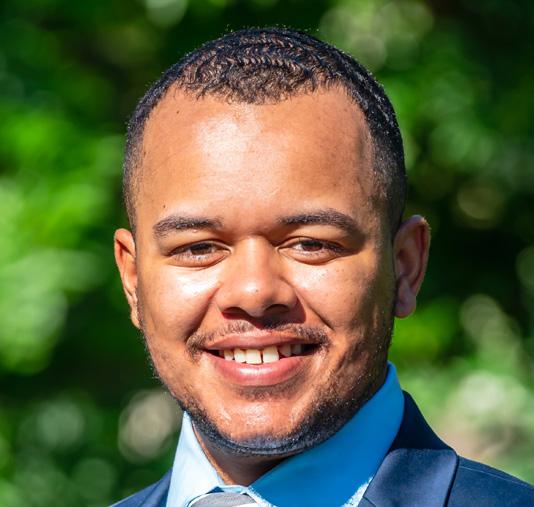
townhomes and condos. It allowed the city to meet its 500 units of new housing the state has required it to build by 2030, said Murphy, who added the council is now focused on bringing in housing for people with very low incomes.
“We have been very diligent and strategic about how we build affordable housing in Pinole,” said Murphy. “We were one of the early cities to get our housing element certified by the state.”
This fall, Murphy is one of at least four out city council candidates in Contra Costa County. Lesbian BART director Rebecca Saltzman is running in El Cerrito, queer advocate Laura Patch is running in Walnut Creek, and gay tech leader Pablo Benavente is running in Concord.

Having volunteered on Vice President Kamala Harris’ U.S. Senate race in 2016, he told the B.A.R. he is excited to now share being on a ballot with her as the Democratic presidential nominee this year.
“I am ecstatic,” said Murphy, hired this month to be a lead organizer with United Food and Commercial Workers Local 5 union. “I am very excited to see more dynamic leadership from the Bay Area.”
Murphy had been a member of the Lambda Democratic Club of Contra Costa County and served as its first Black president prior to his election. He is the second gay Pinole councilmember, as San Francisco Sheriff’s Department Captain Stephen Tilton was elected in 2006 but recalled in 2008 following the council’s ousting of a popular city manager.
“I am really looking forward to reelection to Pinole City Council. One term is not necessarily enough to continue all of the projects that come from the promises I made in the last campaign,” said Murphy.
Among his achievements, Murphy pointed to the council adopting on August 20 the city’s first-ever climate action and adaptation plan that he had championed. Murphy also pointed to his helping in 2021 to secure $2 million in county funds to repair the Pinole Fire Station No. 74 that had sat unused for 13 years and reopened during his mayoralty.
He has also voted over the last two years to approve 600 new units of affordable housing in Pinole and another 117
tacted when she decided to first seek her education post.
“She told me, ‘Against a strong incumbent, I hope you are ready,’” recalled Normand, who defeated the county board’s then-vice president in 2020 in her first bid for elected office.
Stonewall political action committee chair Ryan LaLonde said the county is “lucky” that Normand is leading the charge to protect the LGBTQ community’s rights at a time when issues involving queer and trans students have come under particular attack.
“Angela’s leadership on the County Board of Education and on the California Teachers Association Governing Board is why we have seen attempts to erode queer rights fail,” stated LaLonde, a gay dad who serves on the school board in the city of Alameda. “Also, as a former special education teacher, she has always been an advocate for students who need true equity in services and programs.”
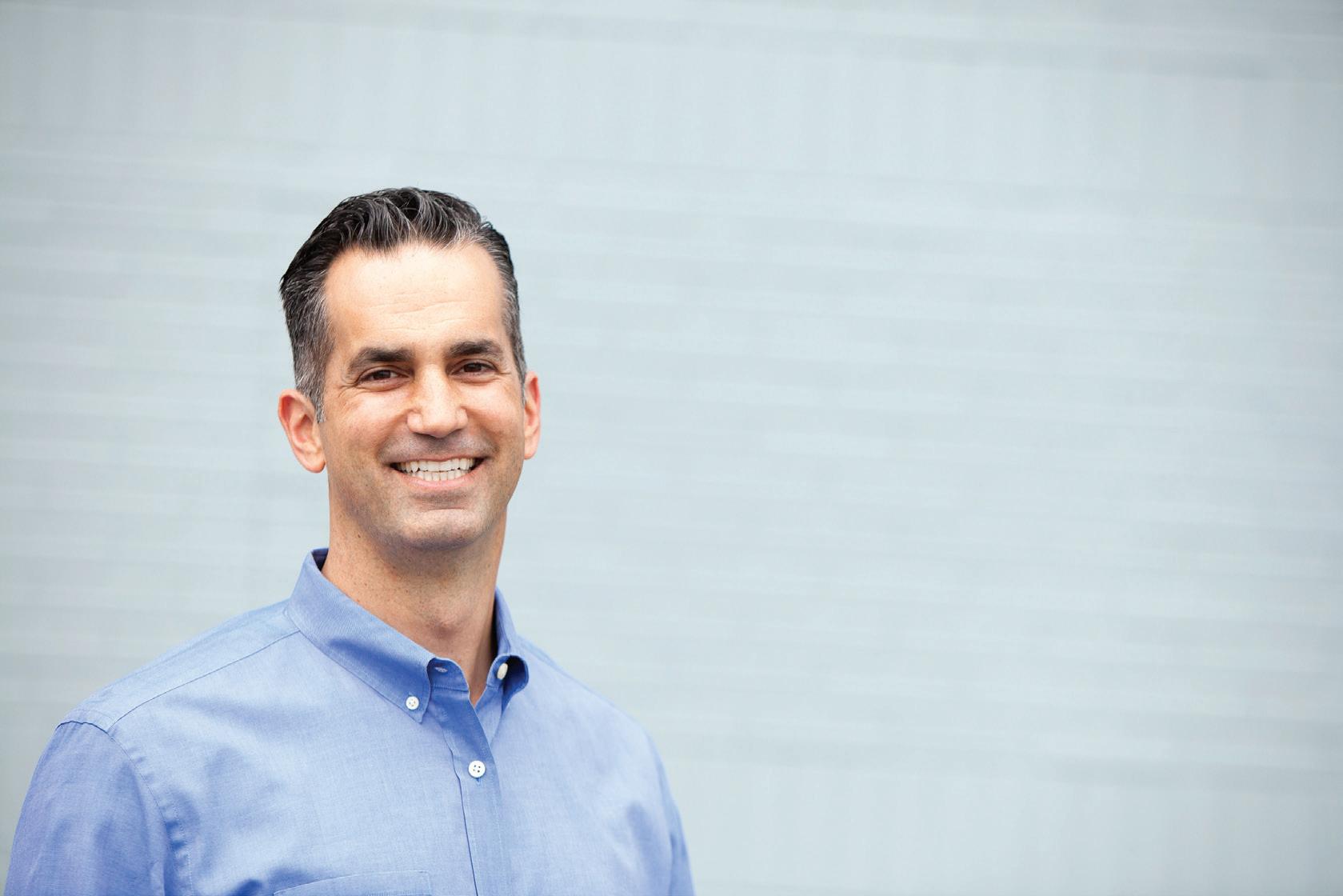
Last December, statewide LGBTQ advocacy group Equality California and national group the LGBTQ Victory Fund both endorsed Murphy’s reelection bid. More recently, the Contra Costa Labor Council joined the list of his union endorsers; it also is backing his council colleague, Maureen Toms, currently Pinole’s mayor, in the race. The other candidate is Christy Lam-Julian
“I do bring a lot of ideas to the table. People know me in my community for that,” said Murphy. “I am also known for having a budget watchdog focus and keen oversight of city staff in terms of how they are doing their work. It doesn’t rub everyone the right way all the time. But I do know my north star and what I am here for.”
To learn more about Murphy and his candidacy, visit his campaign website at murphyforpinole.com.
East Bay Dem club hosts Pride breakfast
During its 11th annual Pride Breakfast next month, the East Bay Stonewall Democratic Club will honor Alameda County Board of Education Vice President Angela Normand, a Black lesbian who won reelection to her Trustee Area 2 seat in the March primary. She is one of two out leaders on the countywide body, serving alongside gay Trustee Joaquin J. Rivera
Normand is to receive the Alameda County LGBTQ political group’s inaugural Peggy Moore Trailblazer Award. Moore, a longtime club member, and her wife, Hope Wood, died in May following a head-on collision on State Route 76 in unincorporated San Diego County.
“I am so honored,” stated Normand, a former Marine who worked as a special education teacher. “I met Peggy Moore at a Black lesbian retreat more than 20 years ago, and we bonded over our shared love of photography.”
Moore, a well-known campaign consultant and political staffer, was one of the first people Normand con-
about the need for a robust television ad campaign, and ideally that should start in September. The campaign received a $2 million donation from the Federated Indians of Graton Rancheria – Greg Sarris, a gay man, is the longtime tribal chairman – and has
Stonewall will also present its Youth Leader Award to lesbian Alameda County Democratic Party Secretary Annie Koruga. Its Ally Award will be presented to the Alameda County Library and its drag storytime program. And the club’s Changemaker Award will be given to the backers of the recall campaign that ousted last month two anti-LGBTQ Sunol Glen United School District members. (One of them, Ryan Jergensen, is running for his old seat in November, according to the Independent.)
Another new memorial award honoring a past club leader will also be handed out at the breakfast gala. The Alicia Kester LGBTQ Creative Award will be given to the Oakland-based ABO Comix – Queer Prison Project. It honors Kester, a transgender Black, mixed-race playwright, poet, fiction writer, and filmmaker who passed away last December.
The theme of this year’s breakfast is “Speak Out!” to reinforce the need for LGBTQ people to have a seat at the table when it comes to public policy.
“The only way for us to continue to see positive policies being created that uplift and protect LGBTQ people is for us to be in power and in the room,” noted Stonewall board chair Matt Lardner
The breakfast will be held from 8:30 to 10 a.m. Sunday, September 8, at LGBTQ nightlife venue Fluid510 at 1544 Broadway in downtown Oakland. Afterward, the club will march in the Oakland Pride parade.
The event doors open at 8:30 a.m. with the program beginning at 9. Following the breakfast, members of EBSDC and event guests will participate in the Oakland Pride parade as well as have a booth at the Pride festival.
Tickets for the breakfast cost $25 for club members, students, and seniors or $50 for non-members. They can be purchased at eastbaystonewalldemocrats.org/events.t
Web Extra: For more queer political news, be sure to check http:// www.ebar.com Monday mornings for Political Notes, the notebook’s online companion. This week’s column reported on a Cathedral City council race with two gay entrants.
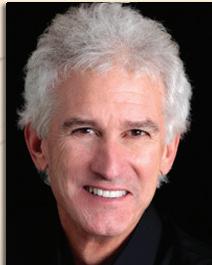

Jesus didn’t discriminate so neither do we.
Come and see Dignity/SF, which affirms and supports LGBTQ+ folks. Catholic liturgy Sundays at 5pm, 1329 7th Avenue (Immediately off the N Judah line)
Come for the service and stay for the fellowship. dignitysf@gmail.com for more details Instagram @dignitysanfrancisco † Facebook @DignitySF


The Bay Area Reporter can help members of the LGBTQ community in the San Francisco Bay Area reach more than 120,000 local residents each week with their display of Obituary* and In Memoriam messages.
RATES: $21.20 per column inch (black & white) $27.75 per column inch (full color)
Keep abreast of the latest LGBTQ political news by following the Political Notebook on Threads @ https://www.threads.net/@matthewbajko. Got a tip on LGBTQ politics? Call Matthew S. Bajko at (415) 8298836 or email m.bajko@ebar.com
raised about $3.5 million so far, according to records. That’s not much for a statewide campaign. We’re glad the Yes on 3 campaign moved quickly to highlight same-sex couples on its website, but they should have been there in the first place.t
The Bay Area Reporter can help members of the community reach more than 120,000 LGBT area residents each with their display of Obituary* & In Memoriam RATES: $21.20 per column inch (black $29.15 per column inch (full color) DEADLINES: Friday 12noon for space reservations Monday 12noon for copy & images
DEADLINES: Friday 12 noon for space reservations Monday 12 noon for copy & images
TO PLACE: Call 415 829 8937 or email us at advertising@ebar.com *Non-display Obituaries of

Call 415-829-8937 or email advertising@ebar.com


by Matthew S. Bajko
With San Francisco’s LGBTQ residents rapidly progressing to their golden years, housing specific to their cultural needs is expected to be in high demand. In particular, there will be an acute need for affordable options for the city’s queer elders, expected to number 30,000 by 2030.
City planners have approved a new 187-unit affordable housing project aimed at LGBTQ seniors to be built along the upper Market Street corridor not far from the heart of the Castro district. It is to be the third such development jointly undertaken by affordable housing developer Mercy Housing California and Openhouse, a nonprofit provider of LGBTQ senior services in San Francisco.
Years ago, the two agencies partnered on the 119-units of LGBTQwelcoming affordable senior housing split between the buildings at 55 and 95 Laguna Street. The campus, which includes Openhouse’s offices and community center, is a short walk from the location of their new 15-story residential tower to be built at the corner of Market Street and Duboce Avenue.
Construction on the $117 billion project, however, has yet to begin.
Mercy is waiting to learn if its funding request via the state’s Affordable Housing and Sustainable Communities Program will be approved by the California Strategic Growth Council and the state’s Department of Housing and Community Development.
A spokesperson for the state agency had told the Bay Area Reporter in the spring that the funding announcements should be made “by August.” But last week the agency said the “awards are currently under review and a date has not yet been set to announce them.”
Even when completed the project will hardly address the hundreds of LGBTQ seniors who would benefit from being able to move into affordable housing units. Thus, the B.A.R. asked this year’s mayoral candidates how they would address the issue.
Mayoral candidates respond
Mayor London Breed, one of the seven candidates in the race who returned the B.A.R.’s questionnaire, highlighted how she worked with gay District 8 Supervisor Rafael Mandelman to have the city in 2020 purchase the Sheet Metal Workers Local 104 union hall building for $12 million in
Erik Butterfield
April 4, 1982 – April 2, 2024

Erik Butterfield, a vibrant soul with an infectious zest for life, left this world at the age of 41 on April 2, 2024, two days before his 42nd birthday. Born on April 4, 1982, in Seattle, Erik brought light and joy to all who knew him. He attended Newport High School and then the University of Oregon on a javelin scholarship.
Erik’s passion for photography, skiing, biking, hiking, and attending concerts reflected his adventurous spirit and love for experiencing the beauty of life. He was the beloved son of David and Barbara Butterfield, brother to Anne Case (Rudy), and half-brother to Kerin. Erik adored his nieces Samantha, Ceci, Makayla, and Nic, each holding a special place in his heart.
Though Erik’s physical presence may be gone, his memory will continue to live on in the hearts of those who were fortunate enough to know him. He will be deeply missed and fondly remembered for his adventurous spirit, his genuine kindness, and the joy he brought to all who knew him. Rest in peace, Erik.
order to see the new LGBTQ-affirming senior housing project be built on the triangular lot.
If reelected come November 5, Breed pledged to continue to advocate for more housing at all income levels, which she argued would create more affordable housing for all.
“As supervisor I traveled to Washington, D.C. to advocate for and create the first Neighborhood Preference policy (2016) which requires 40 percent of units in new affordable housing developments funded by the city and private sources to be reserved for people living in the supervisorial district where the projects are built or within a half-mile of them. This program allows us to prioritize our LGBTQ senior housing and has already led to the creation of hundreds of units for LGBTQ seniors,” wrote Breed.
Former mayor Mark Farrell, who represented District 2 as supervisor and is a venture capitalist, contended he has “the boldest housing platform of any candidate” in the race. His plan would see more middle-income and affordable homes built across the city, he argued.
It includes streamlining the permit approval process while eliminating onerous requirements and fees, noted Farrell. As mayor he would push for “targeted upzoning” across San Francisco, which would increase build-
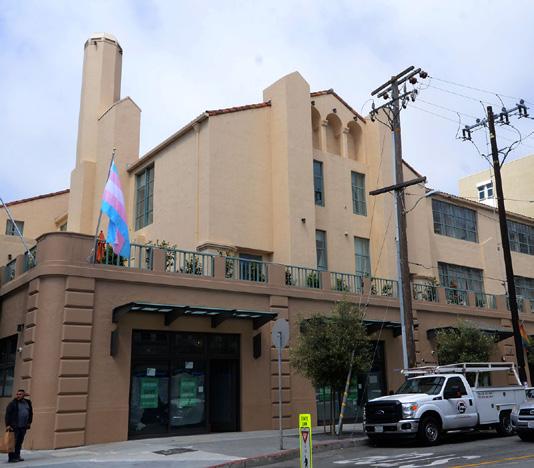
LGBTQ senior agency Openhouse partners with Mercy Housing on the affordable senior apartments at 55 Laguna Street.
ing heights to the maximum in the Financial District, South of Market, and Mission Bay neighborhoods. He would do the same in the city’s western and northern neighborhoods along transit corridors and corner lots.
“By drastically increasing the supply of housing and exceeding our state mandate, we will provide more affordable housing for LGBTQ seniors, and all San Franciscans,” wrote Farrell.
Board of Supervisors President Aaron Peskin, who represents District 3, told the B.A.R. he already streamlined the permitting process for new affordable housing in the city. He also highlighted his recently introduced legislation to allow the city to issue
tax-exempt revenue bonds for middle class housing so developers have access to low-cost capital.
“I’ve long been an advocate for affordable housing for LGBTQ seniors, in addition to my missing middle housing plan that would dramatically expand affordable housing citywide,” wrote Peskin. “Earlier this spring I introduced a new measure to help seniors pay rent through the Housing Opportunity Fund and subsidized rents for extremely low-income housing. This would help pay rent for seniors, including LGBTQ seniors, that make $1,500 a month.”
Peskin also said the city needs to protect its current low-income housing stock.
“LGBTQ seniors are vulnerable to rent hikes and evictions, and I’m the only candidate in this race that’s promised to expand rent control if the state ban is overturned,” he wrote.
Travel business entrepreneur Keith Freedman, a gay Castro resident, echoed other candidates in calling for overhauling the city’s planning processes and building inspection department. He wants to see a uniform planning code that takes the city’s unique neighborhood characteristics under account and would allow any project that meets the code not have to undergo public review.
“Where rent controls aren’t helping
seniors (LGBTQ and otherwise), we need to build more affordable housing options, senior care facilities and other things. We can do this now in many cases, by building new housing that can more easily be utilized for assisted living facilities down the road,” wrote Freedman. “We just don’t consider this when building houses. Ideally people prefer to not move as they age, but have to since they need care. We can think ahead and care can be integrated into multi-family housing as those residents all age.”
District 11 Supervisor Ahsha Safaí told the B.A.R. he wants to streamline the housing site permit approval process and assign city planners to guide all projects through the entitlement process. He also wants to maximize height and density along commercial corridors by targeting six to eight story buildings in those areas but also stepping down building heights further away from transit stops.
He also criticized Breed for not fully funding the city’s Prop I transfer tax to build and secure affordable housing. He would ensure Prop I funds are spent on affordable housing, including for acquiring apartment buildings that house mainly working and middleclass families through the city’s Small Sites Acquisition Program.

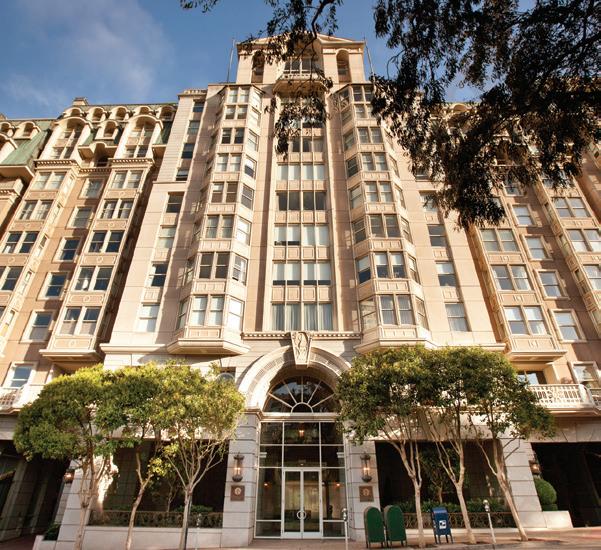
world-class theaters and beautiful parks are within walking distance. But you don’t have to go far to pursue your interests. From art class and aqua fit to concerts and happy hour, you’ll find opportunities to engage mind, body and spirit. When you want to relax, our comfortable
by Cynthia Laird
Grateful to be alive, longtime gay and AIDS survivor Cleve Jones is planning an “epic” party for his 70th birthday this fall. The event also marks the debut of the Cleve Jones Community Fund, which will help support the San Francisco AIDS Foundation and the AIDS Memorial Quilt, both of which he co-founded decades ago.
Horizons Foundation, the Bay Area’s 43-year-old LGBTQ community foundation, will administer the community fund, a news release stated.
Jones’ birthday party will take place Friday, October 11, which is his actual birthday as well as National Coming Out Day, at the Hibernia in San Francisco. The celebration will raise funds for the AIDS foundation and the National AIDS Memorial Grove, which oversees the quilt.
“I remember turning 40 and I was so sick,” Jones said in a phone interview this week with the Bay Area Reporter. “I told a friend I went to bed and was 39 and woke up and was 82.
“I’m very grateful to be alive – and surprised,” he added.
Jones wants to help the AIDS foundation and the quilt because he sees what he called “concerning” developments in the area of funding for HIV/AIDS. He read a quote from a letter issued last year from the Levi Strauss Foundation in which it stated it was “winding down” its donations to HIV programs after 40 years and over $85 million in investments. The foundation announced the news on its website last September.
Further, the San Francisco Standard recently reported that the number of participants was down this year for the AIDS/LifeCycle, a 545-mile bicycle fundraiser for SFAF and the Los Angeles LGBT Center. That means less money raised for the two organizations.
“We have every reason to be proud,” he said of the city’s continued lower cases of HIV, “but that doesn’t mean it’s over.”
Figures from the San Francisco
Department of Public Health for its 2023 semi-annual HIV surveillance report show there were 132 new HIV diagnoses in 2023, down from 167 in 2022. The health department stated these numbers are preliminary and may increase due to reporting delays. It will release its annual HIV surveillance report for 2023 later this year.
“I joined gay liberation in 1972 and moved to San Francisco in 1973,” Jones stated in the release. “I was fortunate to meet and work with some of the great pioneers of our community.” Jones was mentored by the late gay supervisor Harvey Milk and straight ally Art Agnos, a former San Francisco mayor.
Jones moved to the Russian River area of Sonoma County a couple of years ago, after a dispute with his San Francisco landlord, as the B.A.R. noted.
He said that at the time of the fight with his landlord, his health was suffering. “I was getting some bad lab numbers,” he said. “And I got a cancer diagnosis. I’ve now been cancer-free for 18 months.
“When you get to this age, we lose our friends. For gay men in particular, so few survived,” Jones added.
The party
Jones was able to line up performers by contacting them via Instagram, he said, adding that lesbian promoter Audrey Joseph is producing the event.
The party will feature live performances by Our Lady J, Chris Housman, Anthony Wayne, the San Francisco Gay Men’s Chorus, and DJ Phil B.
Jones said Our Lady J, the first out trans woman to perform at Carnegie Hall and known for her work on “Pose,” is expected to sing her song, “The Future of Us,” with the gay men’s chorus. (She had performed it with the New York City Gay Men’s Chorus, and Jones saw a YouTube video, leading him to contact her.)
Wayne channels the late gay disco star Sylvester, whom Jones met at a diner on his first night in San Fran-
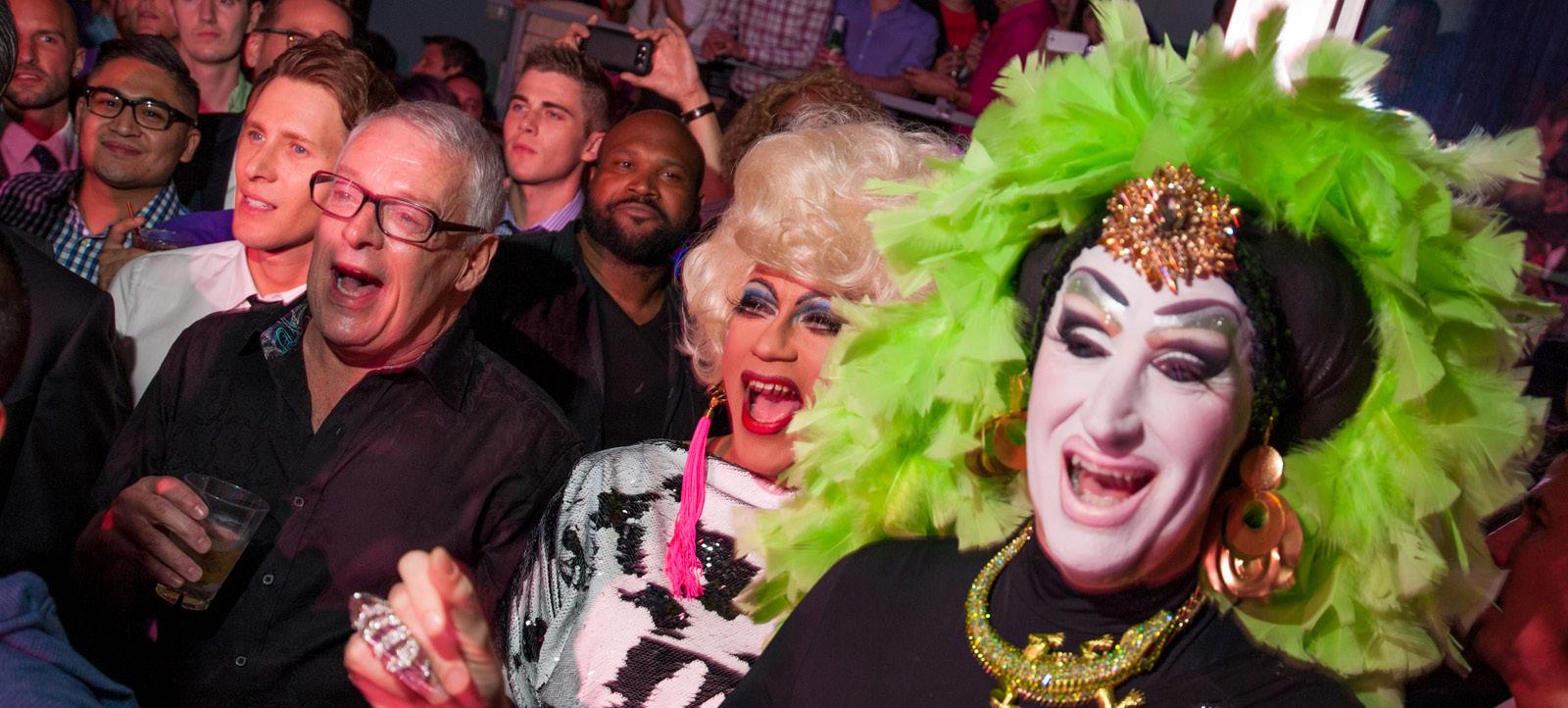
cisco 50 years ago, he recalled.
Housman, a gay country singer, is expected to perform “Drag Queens,” a song that resonates with Jones because of all the recent attacks on drag artists.
“I’ve been calling these queens for decades,” Jones said, adding that they’ve always showed up at fundraisers or other events to help him raise awareness.
Drag queens Sister Roma of the drag nun group Sisters of Perpetual Indulgence, and Juanita MORE! are co-hosts for the evening.
Roma stated in an email to the B.A.R. that the party “is going to be THE event of the year!”
“Cleve Jones is a national treasure,” Roma wrote. “As the visionary who created the AIDS Memorial Quilt, he is responsible for the literal fabric of our community. It blows my mind when I look at Cleve’s contributions to civil rights, not only here in San Francisco but around the globe. I hope everyone turns out for his birthday celebration to show respect and appreciation for his decades of service and activism.”
MORE! stated that she wanted to “publicly acknowledge his 70 remarkable years by spanking him for each year of his life.”
“I’m honored to be a part of Cleve’s 70th birthday celebration,” MORE! wrote in an email. “For as long as I can remember, Cleve has been an outstanding community figure, leading

and motivating everyone. I am proud to be associated with him in any way, and hearing his impassioned speeches has always inspired me.
“I didn’t know him in 1987, but I traveled to Washington, D.C., to see the AIDS Memorial Quilt displayed for the first time on the National Mall. It was a powerful and emotionally overwhelming day,” she added.
Jones even enlisted former B.A.R. leather columnist and longtime leather community leader Race Bannon. His job was putting Jones in touch with the flag dancers from Golden Gate Park, who will perform.
“There are few men for whom I would rally birthday party attendees with the enthusiasm I am for Cleve Jones,” Bannon wrote in an email. “Yes, we’re friends, but I also respect him and his community and civil rights work so much that I would be remiss if I did not get others to help celebrate Cleve’s 70th. That the event is also a fundraiser for such worthy nonprofits makes me even more excited to encourage people from all walks of the LGBTQ community to attend.”
Jones said that queer muralist and artist Serge Gay Jr. has created a series of original art pieces based on facets of Jones’ life and that party attendees will be able to purchase posters.
In addition to performing with Our Lady J, the gay men’s chorus will be singing a song written by member Joseph Shapiro, with music by Holly Near, based on a speech Jones gave at Sonoma State University.
Long ties to nonprofits
Jones co-founded SFAF in 1982 and conceived the AIDS quilt in 1985. His award-winning memoir, “When We Rise: My Life in the Gay Rights Movement,” was published in 2016 and was the basis for an ABC miniseries the following year.
Tyler TerMeer, Ph.D., a gay Black man living with HIV who is CEO of the AIDS foundation, thanked Jones for his efforts.
From page 7
“Housing in San Francisco doesn’t have to be so divisive. We can all agree that anyone who wants to live in San Francisco should be able to afford to live here. In order to make that a reality, we need to build more housing. Now,” wrote Safaí. “That means more affordable housing and more market rate housing for All San Franciscans – including LGBTQ seniors, working and middle-class families.”
Daniel Lurie, an heir to the Levi’s fortune who later became founder and CEO of the nonprofit Tipping Point Community aimed at addressing the Bay Area’s homelessness epidemic, pointed to his plan to reform City Hall that includes closing loopholes and streamlining the city’s bureaucracy in order to see new housing be built.
“Many older LGBTQ+ individuals face unique challenges, often aging alone. We will prioritize funding for culturally-competent mental health and housing support, so that those who paved the way during the AIDS epidemic and fought against prejudice have the support they deserve,” wrote Lurie. “My City Hall Accountability Plan will expedite housing permits
“We will forever be indebted to Cleve Jones for co-founding San Francisco AIDS Foundation, which has cared for and advocated on behalf of communities most impacted by HIV for more than 40 years,” TerMeer stated. “Cleve’s new community fund will help ensure that his life’s work will continue to inspire hope and strive to realize a world where HIV is eliminated, and health justice is achieved for all.”
John Cunningham, a gay man living with HIV who’s CEO of the AIDS grove, noted Jones’ work with the quilt. The grove took over stewardship of the quilt in 2019 after reaching an agreement that was brokered in part by Congressmember Nancy Pelosi (DSan Francisco), then serving as House speaker; Congressmember Barbara Lee (D-Oakland); and the late congressmember John Lewis (D-Georgia).
“Cleve’s vision of the AIDS Memorial Quilt helped change the world’s response to the pandemic and stands as one of the greatest of his many achievements over a long and storied career,” Cunningham stated. “We are honored to serve as stewards to this living memorial to those lost to AIDS and which serves as an ongoing tool for HIV prevention. The fund will help preserve this national treasure for future generations.”
Gilead Sciences Inc. is a sponsor of the upcoming birthday bash. The company, which produces HIV/AIDS medications such as those for PrEP, has also contributed to the preservation of the quilt.
“Cleve Jones’ vision of the quilt sparked a powerful movement to advance health and social justice,” stated Carmen Villar, vice president, environmental social governance and corporate citizenship at Gilead. “Its purpose remains just as important today as it plays a role in helping to end the HIV epidemic by opening hearts and minds.”
Roger Doughty, a gay man who is president of Horizons, noted that LGBTQ history “cannot be forgotten.”
“Few have done as much as Cleve Jones, not only to create these priceless legacies, but also to build an LGBTQ future of freedom, dignity, and equality,” he stated.
The October 11 party at the Hibernia, 1 Jones Street (at Market), begins at 8 p.m.
Tickets start at $50 (early bird pricing), and $250 for the “Cleve Jones Experience,” which includes premium benefits throughout the evening. Some ticket packages are sold out. For more information and to purchase tickets, go to horizonsfoundation. ejoinme.org/cleve-70-info.t
and eliminate bureaucratic hurdles, ensuring more housing is available for all, especially the most vulnerable in our community.”
Transit engineer Shahram Shariati, who also works as a residential property manager, told the B.A.R. the city needs to do a better job of educating residents about its first-time affordable homebuyer program, which allowed him to buy his home eight years ago. He also wants to offer incentives to landlords who agree to rent the 60,000 empty units they combined have in the city to individuals paying 30% of their income.
“We also have existing below-market-rate programs for those 62 and older, where rent can be as low as $300 per month. Unfortunately, the average San Francisco resident is unaware of these programs, and the leading candidates never mention them in their platforms,” he wrote.
One promotional idea Shariati has is to team with Netflix on a documentary series about the city’s politics.
“All elected and appointed officials would be on camera for the entire four years of my term. This would create transparency, forcing officials to either do their jobs correctly or face exposure,” he told the B.A.R.t
Discover the heart of compassionate care at The Watermark by the Bay. Every person deserves an ally in life, and our talented associates are committed to serving as unwavering partners in care.
Whether for yourself or a loved one, we are dedicated to offering top-tier Assisted Living and Memory Care in Emeryville. Our resident’s well-being is our top priority, and we are here to be a friend to depend on when it matters most.
Come see what makes


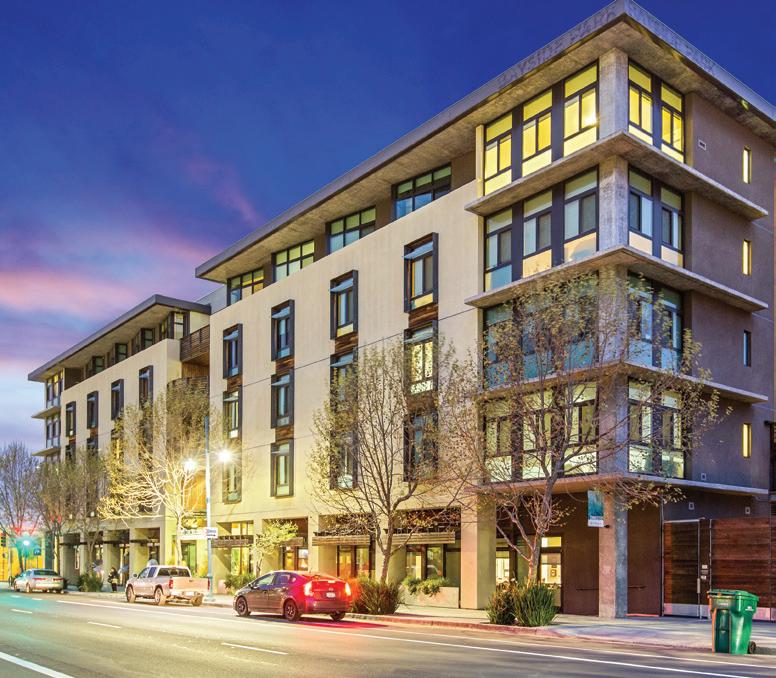
when an anxious teenager growing up in Indiana wondered if he would ever find belonging in this world.’ But then he points to the change that can occur in a short time, and hints at what is possible because of the character of Kamala Harris and Tim Walz.”
U.S. Senator Alex Padilla (D-California), who replaced Harris in the Senate after she became vice president, talked about the American dream in his August 22 remarks.
“I knew and I had some big Chuck Taylors to fill,” he joked, referring to Harris’ choice of casual footwear, continuing that “I was proud to carry on legislation that she championed to protect workers, to safeguard public lands, to provide kids with more access to quality education.”
Congressmember Nancy Pelosi (D-San Francisco), the former House speaker, didn’t talk about her role in the ticket swap that led to Harris replacing Biden at the top of the ticket when she gave remarks August 21. She did, however, thank the president, saying his was “one of the most successful presidencies of modern times,” before saying Harris is “ready to take us to new heights.”
<< Gay Republicans
From page 3
their sexuality, to stake their place within the GOP. For these reasons, I think it is very fair to say, as I do in the book, that much of how gay Republicans operated served to support and reinforce the nation’s racial hierarchy, economic inequality, and power structure, even as they sought to challenge its anti-gay culture and politics.”
Is someone a gay Republican or a Republican gay has long been a debate within the gay conservative movement, as Young noted.
“This title was drawn directly from the title of an article in a Log Cabin publication from the 1990s,” he stated. “Those who called themselves ‘gay Republicans’ typically thought their primary purpose was to show the Republican Party that gays and lesbians belonged to it and, by making themselves more visible, to influence the party to support gay rights or, at least, not advance an anti-gay agenda. Those who identified as a ‘Republican gay,’ or, as some of them often said, ‘a Republican who just happens to be gay,’ were much more conservative in their politics overall and thought that the focus should be on influencing the GOP to be a party where sexuality didn’t matter. (They never quite articulated how this would actually happen!)”
Young observes that Republican gays even questioned the notion of gay rights.
“They argued that the government should not actively discriminate against gays and lesbians in employment, housing, and marriage, but that they did not believe there should be ‘special rights’ granted to sexual minorities,” stated Young. “Especially in the early years, those who called themselves ‘Republican gays’ lived more closeted lives and felt more hesitant or uncomfortable about claiming a public identity as a
<< Same-sex marriage
From page 1
Thomas, appointed by President George H.W. Bush to the high court, wrote that it “should reconsider all of this Court’s substantive due process precedents, including Griswold, Lawrence, and Obergefell.” Griswold v. Connecticut was a 1965 ruling that people have a constitutional right to access contraceptives; Lawrence v. Texas was a 2003 ruling that overturned laws prohibiting sexual relations between people of the same sex, as well some laws against oral or rectal intercourse between members of the opposite sex.
In response to Thomas’ warnings,
Protests fizzle
Demonstrators against America’s support for Israel promised a massive mobilization in Chicago, reminiscent of the disastrous 1968 Democratic National Convention. Those plans fizzled, and despite months of Democrats receiving criticism over antiIsrael protests, parents of an American being held hostage by Hamas spoke at the convention August 21 and were greeted with “bring them home” chants and thunderous applause.
Rachel Goldberg-Polin and Jon Polin talked about their son, Hersh GoldbergPolin, a 23-year-old dual citizen of the U.S. and Israel who was born in Berkeley and was attending the Tribe of Nova music festival on October 7, 2023, when his arm was reportedly blown off and he was taken captive by Hamas.
“This is a political convention,” Jon Polin said. “But needing our only son – and all of the cherished hostages – home is not a political issue. It is a humanitarian issue.”
Tyler “Tye” Gregory, a gay man who is executive director of the Jewish Community Relations Council Bay Area, was attending the convention wearing a yellow ribbon pin meant to highlight the hostage crisis. “It was incredibly heartwarming to
gay person than the ‘gay Republican’ folks did.”
Young comments that this debate has largely receded among gay Republicans.
“However, there is this fairly common habit, especially for those gay Republicans who appear on conservative media, like Fox News, of downplaying one’s sexual identity in favor of other identities, especially political and religious ones,” he noted. “As one of them has recently said, ‘I’m a Christian, a patriotic American, and a free-market, shrink-the-government conservative – who also happens to be gay.’”
Accomplishments
Young was asked what he felt were the chief accomplishments of these gay Republican groups in terms of furthering LGBTQ rights in the U.S.
“Gay Republicans played an enormous and critical role in bringing about the two greatest accomplishments of the LGBTQ rights movement: the end of the military’s ban on gay and lesbian servicepersons and the legalization of same-sex marriage,” Young stated. “I don’t argue that gay Republicans solely achieved this or that they accomplished something that other groups weren’t able to. But my point is that they played a vital role in this collaborative work.
“In the case of the military ban, gay Republicans had worked on ending this for decades, often when mainstream gay organizations were not focusing on it. And in 2010, Log Cabin Republicans scored a monumental victory when a district court judge ruled in favor of their lawsuit against the federal government and declared the military ban unconstitutional. This legal victory is what compelled the U.S. Senate to finally overturn ‘Don’t Ask, Don’t Tell.’
“In the case of same-sex marriage, gay conservatives, like Andrew Sullivan, Bruce Bawer, and Jonathan Rauch, were some of its most ardent
President Joe Biden and congressional Democrats shepherded the Respect for Marriage Act into law later that year with bipartisan support.
The new law repealed the discriminatory so-called Defense of Marriage Act that was passed in 1996 but had key provisions struck down by the U.S. Supreme Court in 2013 (Section 3, U.S. v. Windsor) and 2015 (Section 2, Obergefell v. Hodges). The law requires the federal government and all states and territories to recognize the validity of same-sex and interracial civil marriages performed anywhere in the U.S. Interracial marriage has been legal nationwide since a 1967 Supreme Court decision, Loving v. Virginia. According
hear the love Hersh’s parents received yesterday,” he told the B.A.R. August 22. “I think the hostage families and all Jewish Democrats are feeling much more confident in the party’s support.”
Delegates uncommitted to Harris lodged a protest as to why a Palestinian voice was not given the opportunity to speak. Ahmed Fouad Alkhatib, who grew up in Gaza City and was one of the subjects of a series of B.A.R. reports on the war and related issues, stated on X that “there were several attempts to get me on the DNC stage to speak and share a message of healing and unity – all were unsuccessful.”
Alkhatib stated that “several allies connected to the entirety of the web of leadership that makes decisions on speaker slots had strongly recommended I be able to speak,” but that he “chose not to be in Chicago unless I had a productive role to play” because he was “concerned by some of the loud voices that are doing the Palestinian cause a disservice with their rhetoric, choices, threats, and unhelpful tones.”
Harris had met with leaders of the uncommitted group – who were protesting the Biden-Harris administration’s support for Israel in the conflict with Hamas in Gaza – before the convention. Her more balanced tone

and effective early advocates, helping mainstream the notion of and the rationale for ‘gay marriage’ in the public conversation,” Young explained. “And gay Republicans played a huge role getting several states to pass gay marriage, especially in the enormously important state of New York, where gay Republicans successfully convinced enough Republican legislators to join with the Democratic minority to finally push marriage equality across the threshold.”
Young maintains this is a tactic gay Republicans have been using since the 1980s, especially in California.
“Gay Republicans have always been fairly honest that they know they will never convince most Republican politicians to support LGBTQ rights. But they have always argued that their work was to convince enough Republican legislators to join with their Democratic colleagues in order to pass LGBTQ legislation with a majority vote,” he stated. “Gay Republicans did this in California during the 1980s in order to pass one of the nation’s first statewide anti-discrimination bills, a significant achievement. Gay Repub-
to Gallup, 94% of Americans approved of interracial marriage in 2021. Thomas, who is in an interracial marriage, did not mention Loving as a precedent to overturn in his concurrence. Nor did Prop 8 ban interracial marriages.
Yet Click told the B.A.R. that Prop 3 includes interracial marriage as well as same-sex marriage; hence the picture initially selected to be the most prominent on the yes campaign website. While the ballot measure language doesn’t specifically refer to interracial marriage - it says “the right to marry is a fundamental right” - the official title and summary prepared by the office of Attorney General Rob Bonta says Prop 3 “amends California Constitu-
has led groups like the Harvey Milk LGBTQ Democratic Club to endorse her in the general election, despite rescinding an endorsement for her boss in the Democratic primary, as the B.A.R. reported.
Harris brought that tone to bear in her acceptance speech.
“I will always stand up for Israel’s right to defend itself – and I will always ensure Israel has the ability to defend itself, because the people of Israel must never again face the horror that a terrorist organization called Hamas caused on October 7 –- including unspeakable sexual violence and the massacre of young people at a music festival,” she said. “At the same time, what has happened in Gaza over the past 10 months is devastating. So many innocent lives lost. Desperate, hungry people fleeing for safety, over and over again. The scale of suffering is heartbreaking. President Biden and I are working to end this war, such that Israel is secure, the hostages are released, the suffering in Gaza ends, and the Palestinian people can realize their right to dignity, security, freedom, and self-determination.”
GOP responds
California Republican Party Chairwoman Jessica Millan Patterson is-
licans also found that if they could round up a handful of Republicans to vote for LGBTQ bills, it always put pressure on any wavering Democratic legislators to commit their support too. I think all of this demonstrates that gay Republicans have been effective not so much at dramatically transforming their own party around LGBTQ rights, but rather in how they have worked within a two-party political structure to advance LGBTQ rights through bipartisan support.”
But Young believes that the HIV/ AIDS pandemic had a profound impact on gay Republicans’ advocacy for same-sex marriage rights, beginning in the late 1980s. “This marked a real contrast from how many of them had responded to the crisis at the beginning of the decade when they tended to focus more on making arguments about bodily autonomy and sexual freedom,” he stated. “In San Francisco, for example, the gay Republican organization helped lead a lawsuit against the city’s public health department for closing the bathhouses, which they saw as a Democratic-led conspiracy to interfere in private enterprise and violate individual freedom. (It should be noted that most of the city’s gay Democratic organizations also opposed the city’s shutdown of the bathhouses.)”
Young argues that by the late 1980s, gay Republicans started to shift their attention away from defending sexual freedom to instead advocating for same-sex marriage. “With the death rates escalating at the end of the decade – the deadly virus was as devastating for the gay Republican clubs as it was for every gay community –gay Republicans started to argue that if same-sex marriage were legal, it would change gay men’s sexual habits and help curb the epidemic,” Young noted. “They contended that legalizing same-sex marriage would be a public health service, as it would draw gay men into monogamous commit-
tion to recognize fundamental right to marry, regardless of sex or race.”
The B.A.R. also noted to Click that the secondary photo used on the campaign website of a same-sex female couple was blurry in contrast to the lead photo of the straight-appearing couple.
“That wasn’t our intention in designing the site,” he said. “Obviously, this is incredibly important to Californians and why we’ve received a ton of support for the measure.”
Click referred the B.A.R. to the campaign’s Instagram page, which features photos of same-sex couples .
The Instagram page represents “a wide diverse number of voices and experiences,” said Click, who used to
sued a statement after Harris’ speech perplexed at why a California Democrat should be nominated for president considering the state’s widely reported, intractable problems.
“National Democrats have bafflingly looked at California, the state with high unemployment, an exorbitant cost of living, a homeless crisis, a porous border and rampant crime, and said yes please, let’s do that to the whole country,” Patterson stated. “For two decades, California radical Kamala Harris and her extreme, far-left agenda have devastated those she was elected to serve, and her record of failures should be an automatic disqualifier for our nation’s highest office.”
But California Assemblymember Matt Haney (D-San Francisco), who attended the convention, told the B.A.R. August 22 that “it’s been an incredible week to be a Californian and an incredible week for our country.”
Tung wants San Francisco party faithful to know that “we are looking to create space and opportunities for people to engage, as we do not want to leave anything to chance this election cycle.”
“People have indicated a strong interest in working on federal races this fall, including supporting Kamala Harris,” the party chair stated. “More details to follow.”t
ments and alter sexual behavior.”
Young credits the vicious homophobia of conservative activists such as Patrick Buchanan and Gary Bauer for refashioning gay Republicans’ response to HIV/AIDS.
“Recognizing this growing backlash against gay persons, gay Republicans realized there was no way their libertarian messages about bodily autonomy and personal freedom were going to work now that social conservatives had taken over the GOP and were using HIV/AIDS to fearmonger,” stated Young. “So, gay Republicans developed what I have called a ‘gay family values politics’ that emphasized sexual monogamy, gender conformity, and the need for same-sex marriage to be legalized. I argue that their conservative framing of same-sex marriage worked first with Democrats and independents who, in the 1990s, didn’t show much more support for marriage equality than Republicans did. As the great marriage equality activist Evan Wolfson told me, gay conservatives provided the same-sex marriage movement a ‘vocabulary’ that worked to reach the majority of Americans who wouldn’t be persuaded by progressive language. Gay Republicans began developing that vocabulary at the height of and in response to the HIV/AIDS epidemic.”
Young asserts that gay Republicans have worked to build the modern GOP, alternately resisting some of its worst inclinations while also helping some of its extremism. More recently, gay Republicans have shifted their focus from identity to ideology by attacking “radical gender ideology,” which they argue is being forced on the country and also explains the right’s obsession with “cancel culture, “wokeness,” and critical race theory.t
[Editor’s note: Next week, Young will discuss how gay Republicans have dealt with Donald Trump and attacks on transgender people.]
work for Governor Gavin Newsom’s office. When the B.A.R. asked if the lead photo on the website should be swapped, from time-to-time, Click said, “I think that’s a good idea.” Newsom came to San Francisco in early June to kick off the Northern California campaign for Prop 3. At the event, held at gay-owned cafe and event space Manny’s in the Mission neighborhood, Newsom pledged to do “whatever I can do” to ensure that state voters pass Proposition 3. The B.A.R. also let Click know that the website link to a news release to the launch of the Yes on Prop 3 campaign led to a 404 not found error message. The link was later fixed.t
by Gregg Shapiro
When it comes to comedy, everyone has their own ideas about what is or isn’t funny. Things that make you laugh might have the opposite effect on someone else. In the ongoing evolution of stand-up comedy, the presence of LGBTQ comics continues to increase at a fast pace.
While lesbian comedians have long dominated, gay male comics are making their presence felt, with Matteo Lane being, far and away, the best.
Lane, who combines Midwestern and European influences in his material, has a distinctive delivery style that often has audience members struggling to catch their breath between jokes and laughs. It also helps that he’s easy on the eyes, very handsome with a hot gym body! Matteo was kind enough to make time for an interview in advance of his upcoming comedy tour, including San Francisco on December 12 & 13 at The Masonic.
Gregg Shapiro: Matteo, I had the pleasure of interviewing you for the first time in 2017 in advance of your performance at the Dania Beach Casino.
Matteo Lane: I think I remember that. I wasn’t headlining, right? Was I opening for someone else?
Someone else who was not very funny.
Okay, now I remember. Sam Jay and I were both opening for…[laughs] yeah, I remember that.
Since then, your social media and online presence have increased greatly. How important is it to you to maintain that?

Troy Hallahan
I don’t know that I think about it in terms of maintaining it so much as it’s nice to reach out and have people reach back. It’s also a great way of letting people know that I’m on tour, so they get to see what I work on all the time, which is stand-up. I don’t think I’ve ever thought about
it that way, as maintaining. I just think of it more as a great opportunity to express yourself and have people enjoy it.
Your conversations with comedians are inspired and hilarious, and the ones with Jessica
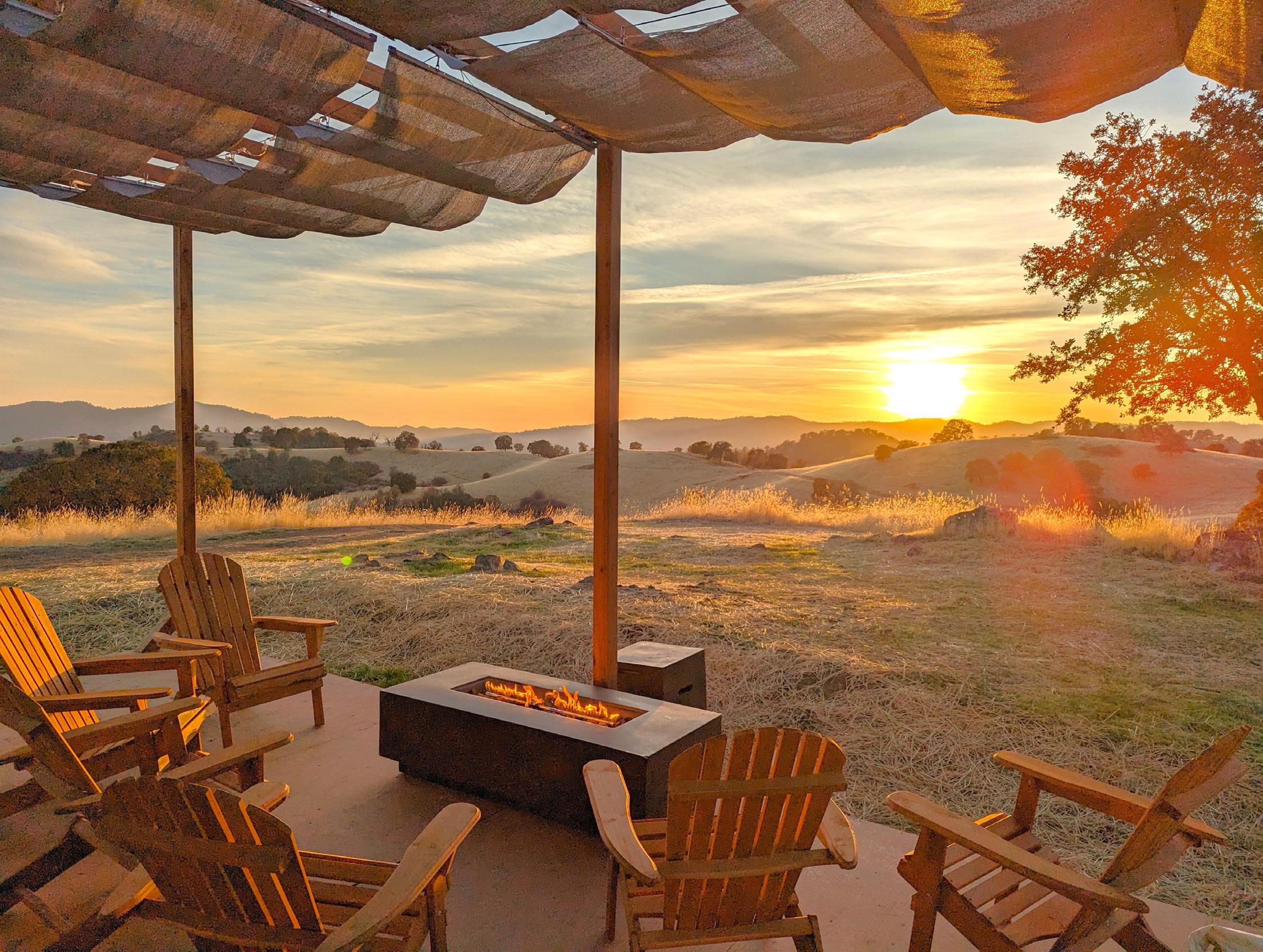
IKirson are a particular favorite of mine. I love Jessica!
That face! Are you having as much fun as you appear to be having?
[Laughs] Yes! What do you take me for? I wouldn’t be doing it if I wasn’t enjoying it [laughs]. It’s not like it’s MGM in 1935 and I have to pretend with Mickey Rooney that I’m having a good time. I’m choosing to do this!
Speaking of Mickey Rooney, do you know if Liza Minnelli is aware of your impression of her?
I don’t know. But I feel like I’ve been getting closer [laughs]. Now I’m at the point where I know close friends of hers. I don’t even think she would be offended if she heard it. I think she’s got tough skin. I think she would laugh, and probably ask me what I wanted for dinner. She seems nice. She has a memoir coming out, and at least 10 people texted me yesterday saying that I should do the audiobook.
Your cooking videos continue to be as informative as they are entertaining. Could you foresee doing a cooking show on the Food Network or the Cooking Channel?
I feel like at this point they would have asked me. It’s always so strange when people see a special night on YouTube and they’ll say, “Next time, Netflix!” I’m like, “But you’re watching it right now, so what’s the difference?” If I’m on the Food Network or YouTube, isn’t it the same thing [laughs]? It’s all an excuse to be funny. The cooking is secondary because I’m using it as an excuse to be very comedy driven. The benefit of not doing it for someone like the Food Network is I get to have full control and air it the way I like it.
The Asia and Chris DeBurgh tour t-shirt you’re wearing in the wonderful cooking video with your mom and your aunt made me wonder; who are some of your favorite musical acts?
I promise you those shirts I wear, I wear them just because they fit well [laughs]. Someone was like, “Are you a huge AC/DC fan?” I go, “What? No, I listen to Bill Evans Trio and Maria Callas.” If it fits well, that’s all I care about. I didn’t even know what was on the shirt, to be honest with you. I guess I should pay more attention to it.
Our eastbound itinerary was a full-family trip: John and I were accompanied by Ollie, our 45-pound terrier mutt. That meant identifying a pet-friendly place to stay.
We lucked out with Wildhaven Yosemite, just outside the town of Mariposa, which not only welcomes dogs, but is in pristine condition, having just opened just this past April.
The newest overnight accommodation in close proximity to the United States’ sixth most-visited national park, featuring 30 platform-mounted tents and 12 minimalist modern air-conditioned cabins that rise above rusticity in both their unworn freshness and tidy design.
tripping to the Mariposa and Anderson Valleys
by Jim Gladstone
t’s easy to stay put in San Francisco. The city is rich in recreational activities, from some of the best maintained and most varied public parks in the country, to beaches, urban hiking trails, and a wealth of arts and culture. Ironically, another of the city’s most enviable attributes is how easy it is to get away from, to environments that feel altogether different.
Over the summer, my partner John and I took two short, refreshing overnight road trips that delivered major changes of scenery with minor fuss
and planning. We travelled east to the Mariposa Valley and Yosemite National Park, and north to the Anderson Valley.
A rule of the road
When planning a car trip out of the city, my rule of thumb is that drive time (round-trip) should clock in at no more than 30% of the time you want to spend in and around your destination. That will give you enough time on the road to crack the windows, crank the music and feel like you’re putting some real distance between yourself and your regular daily life without making you feel like you’re under pres-
sure or on a slog. Over-ambition can be such a spoiler.
Having to hit the highway at the crack of dawn (especially when heading back home) undermines the sense of relaxation you’re striving for. And not enough time to settle in at your destination can be frustrating, making your anticipated “me time” feel like one big U-turn.
If you’re spending one night away from home, pick lodging that’s no more than a four-hour drive from your starting point. Each of our trips took about three hours in late morning weekday traffic, with some additional road time for sightseeing around our accommodations.
The gentle hills of Wildhaven’s 36-acre grounds abut a further sprawl of 2,000 protected acres, providing a welcome sense of remoteness. Easy hiking trails wind through the property-perfect for dog walking-with benches situated at several viewpoints. From a hilltop pergola, we watched the sere Sierra Foothills take on an amber glow as the sun set to the southwest.
While a low-slung reception building at the entrance to the property, just off Highway 140, doubles as a general store selling cold drinks, ice, and some basic groceries, most guests will want to bring along a cooler with dinner fixings. A cooking area with shaded picnic tables; five clean, wellmaintained propane grills; and plenty of barbecue utensils are available to all guests. Cabin guests also have their own kitchenettes with mini-fridges, twoburner cooktops, basic cookware, and utensils.
We stayed in a 168-square-foot tent with transparent plastic windows, nine-foot ceilings, lamps, and most importantly, a comfortable queen-sized bed. There were conventional and USB outlets and slow, but always functioning, WiFi. Our tent platform also included an outdoor sitting area with table and chairs, where we snacked on wine and cheese brought from home.
Initially slightly wary about the toilet and shower facilities in the bathhouse building that tent guests all share, we were pleasantly surprised by their cleanliness and by the privacy provided by the thoughtful layout.
Wildhaven’s cabins, which range from 180 to 240 square feet of indoor space, including private bathrooms, are inspired by the tiny home movement. The outdoors is brought in through large picture windows and skylight, and each cabin also
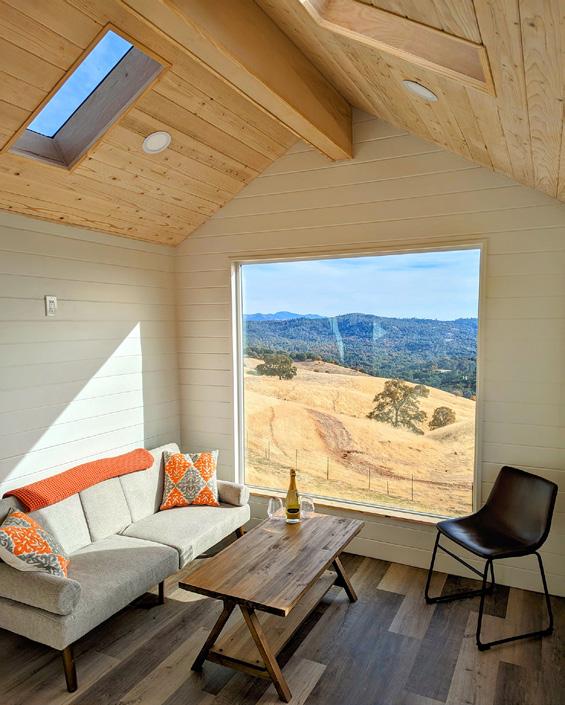


has a furnished patio area. Like the tents, all cabins have heaters and fans, and some even offer air-conditioning.
Wildhaven Yosemite remains open through October, with rates starting from $129 for tents to $199 for cabins. www.wildhavenyosemite.com
Yosemite sampler
Having thoroughly disconnected and chilled out during our visit to
Wildhaven, I’d happily go there again just to hole up and stroll the grounds on a personal retreat. But our first visit, as it is for most guests, was built around a brief visit to Yosemite National Park.
Yosemite virgins often don’t realize just how easily accessible the park is from the Bay Area. And they also may not realize how enjoyable it can be for non-roughing-it, road-tripping types.
A stunning 45-minute mountainside drive along Highway 140 from Wildhaven brought us to the park’s





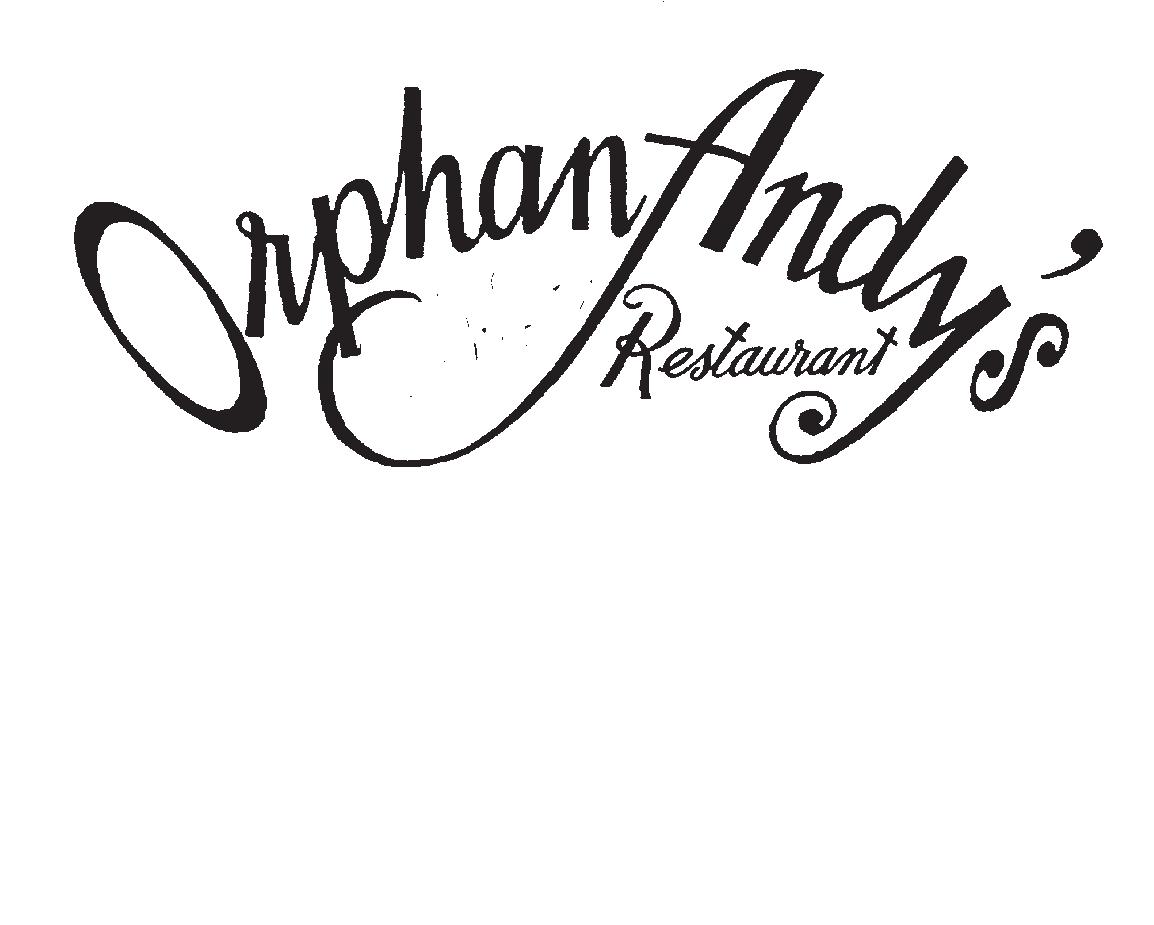
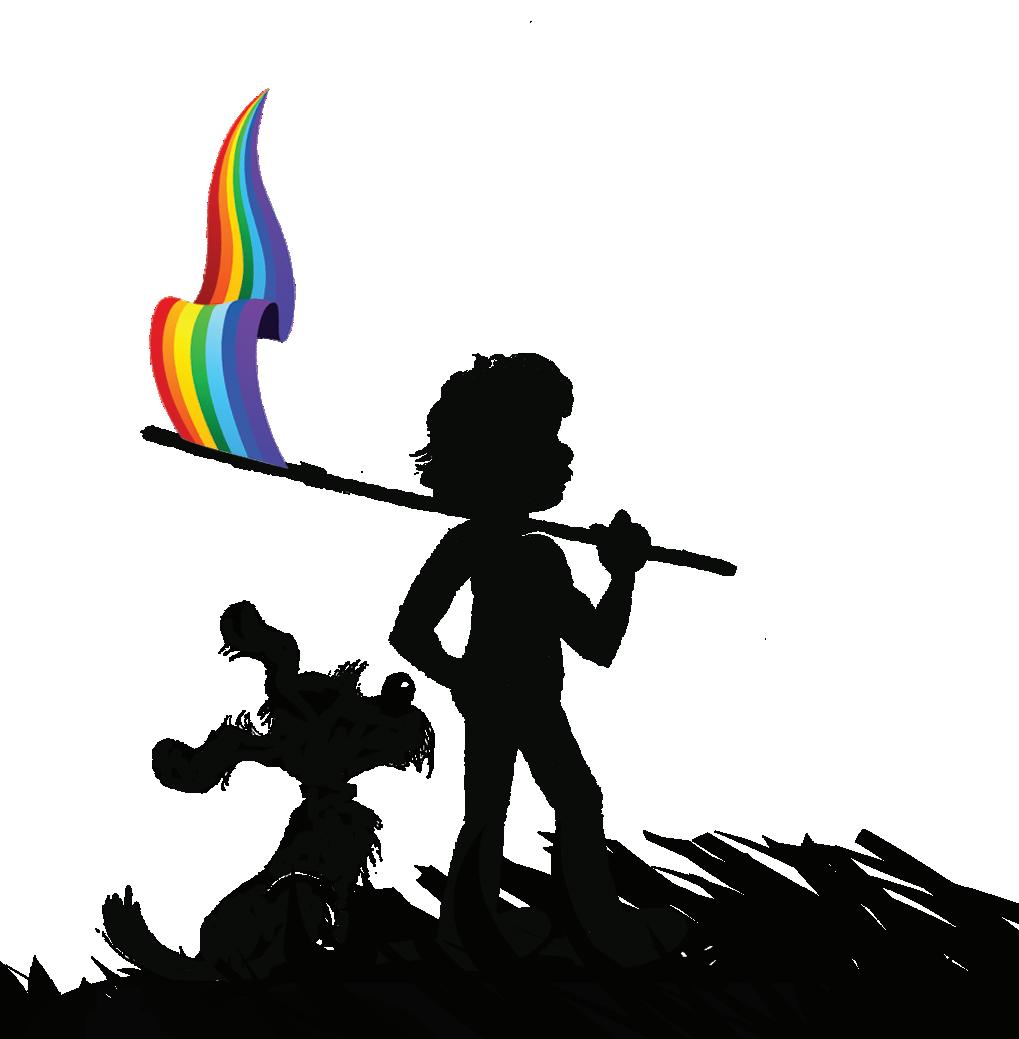
Arch Rock entrance just past the small town of El Portal.
One needn’t scale Half Dome or El Capitan to appreciate the grandeur of these quartz and granite giants. In fact, if you’ve got your dog with you, you’re not allowed.
While most hiking trails are off-limits to canines, virtually all of Yosemite’s ample paved paths and overlooks are available to leashed pooches. The picture postcard views and woodland aromas are anxiety-erasing wonder drugs.
Among the most beautiful and easiest walks on which dogs are allowed is the Bridalveil Fall path. The first waterfall you’ll see as you drive into the park, its cascade has an elegant, cordlike sway as it plummets 620 feet toward the meadow. From the Bridalveil parking lot, it’s just a half mile stroll on a modest incline to the base of the fall.
While one could spend weeks hiking and camping in the park’s nearly three-quarter-million acres, a half day’s driving loop with intermittent short walks (with or without a pet) will easily put you in its thrall. And autumn offers optimal photo ops.
A $35 per vehicle fee is required to enter the park. Between now and October 27, visits on Saturdays, Sundays, Labor Day and Indigenous People’s Day require a reservation, which can be made for $2 online.
www.nps.gov/yose/index.htm
Anderson’s super
Just under three hours from San Francisco, and well worth an overnight stay, is the Anderson Valley, a wine region lesser ballyhooed than Napa and Sonoma and consequently lesser trafficked.
And, while the Russian River Valley has long been known as a gay haven, queer entrepreneurs are behind some of this northerly neighbor’s most appealing attractions.
Once you cross the Golden Gate Bridge, it’s pretty much a straight 120-mile shot up Highways 101 and 128 to the town of Boonville. And in the mere seven-mile stretch between Boonville and Philo, you’ll find plenty to keep yourself busy for a couple of days, and a couple of wonderful spots to lay your head for the night.
John and I are true Fandersons, so this summer’s road trip to the region was by no means our first. Autumn, in fact, is the most glorious season to visit, with an East Coast-worthy display of fall colors.
Every time we head up that way (sometimes following 128 another ten miles or so beyond Philo to the Mendocino Coast), our first stop is Pennyroyal Farm. It’s the living laboratory of agricultural power couple Sarah Cahn
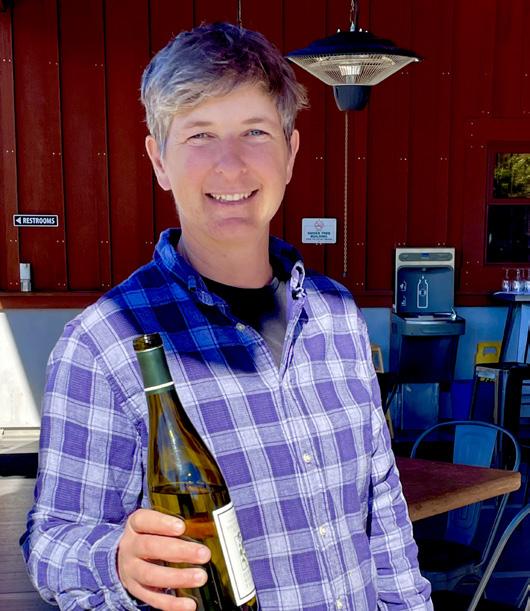
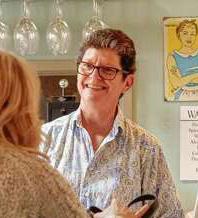
Bennett and Erika Scharfen, who met in a goat husbandry class at U.C. Davis. The pair take the concept of terroir terribly seriously, making estate wine in vineyards that are weeded and fertilized by the same resident herds of goats and sheep who produce the milk used in Pennyroyal’s extraordinary cheeses.
To taste a pairing of these mutually supportive delicacies is to begin understanding the value of sustainable farming, and to speak at length with Bennett, Scharfen or one of the couple’s savvy staff is to learn much more.
John and I did both on a visit that included a guided farm tour and a cheeseboard lunch. Among the cheeses developed by Scharfen, who runs the farm’s dairy operation, is semisoft Bollie’s Mollies, made from a blend of sheep and goat’s milk. It’s both creamy and tangy, and marries beautifully with winemaker Bennett’s unique Pinotrio, a blend of Blanc, Noir, and Gris.
Pennyroyal’s wine and cheese tasting room is open daily, with farm tours offered at 10:30 a.m. and special events are held throughout the year. On October 5, there will be an outdoor film screening in conjunction with the Mendocino Film Festival. Last year’s feature was, cleverly, “Shaun, the Sheep Movie,” with cheesy refreshments on offer.
Also in Boonville, queer oenophile and former Texan Wendy Lamer over-

sees Disco Ranch, the chicest general store you’ve ever encountered, with a mind-boggling selection of semi-obscure international wines that Lamer relishes introducing to newbies. Disco Ranch also has everything you need for a gourmet picnic, including the tables to eat it, on the umbrella shaded, quirkily decorated front patio. That’s where you’ll find the namesake mirrored ball.
www.discoranch.com
Between Pennyroyal and Disco Ranch, you can also pull together all the provisions you need to cook up a private feast to enjoy in the confines of one of the two private guest houses at Stoney Bottom, an inn and historic garden now owned and operated by gay couple Dominic Phillips and James Gregory, a dentist who practices in San Francisco.
Phillips, a native Scot and former event management executive, oversees hospitality on site. A contemporarily decorated one-bedroom cottage and two-bedroom house sit remote from each other, offering options for romantic couples or road-tripping quartets. www.stoneybottom.com
Finally, Philo
Among the over two dozen wineries in the Anderson Valley, including Scharffenberger, Husch, and Maggy Hawk, our favorite is Philo’s Goldeneye for its rich, mouth-filling Pinot Noir and surprising California Gewurtztraminer, but also for its enchanting indoor-outdoor tasting room.
The sweeping vineyard views, mesmerizing fountain and gracious service feel far more personal and attentive than most of Napa and Sonoma’s touristchurning operations. And multi-varietal tastings begin at a modest $25, a bargain in Northern California these days. www.goldeneyewinery.com
Philo is also home to The Madrones, a Tuscan-style boutique hotel that serves as the centerpiece for the burgeoning Anderson Valley empire of gay couple Jim Roberts and Brian Adkinson. Roberts, a second-generation vineyard owner, has expanded his focus to include another intoxicating cash crop: cannabis.
“My mother was growing pot when I was back in high school in the ’70s,” said Roberts, who, with the legalization of cannabis in California, has become a pioneer in both organic, regenerative marijuana cultivation and the development of cannabis connoisseur tourism.
www.themadrones.com
Along with elegant, antique-accented guest rooms, tasting rooms for two local winemakers, and an eccentrically curated gift shop, the Madrones complex includes the Bohemian Chemist Roberts and Adkinson’s 1920s apothecary-style dispensary and education center, selling its own house brand flower, pre-roll, and vape products.
www.thebohemianchemist.com
At the duo’s nearby Sugar Hill Farm, their crops include rare cultivars with Vietnamese, Malawian, and Swazi origins. Partnering with academic agricultural researchers, they are studying the synergistic effects of various plant compounds in varying combinations in an effort to develop functional strains.
Following the model established by wineries, the Bohemian Chemist offers a subscription club with thrice annual offerings, a tasting room aka “partaking area” on the hotel grounds, and special events including farm tours and culinary pairing meals.t
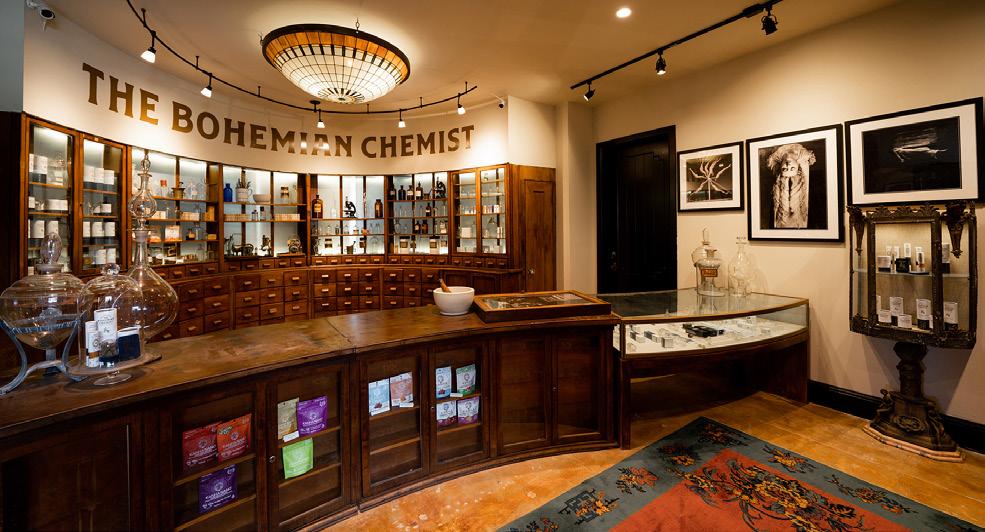

Oakland block party will celebrate pride, diversity
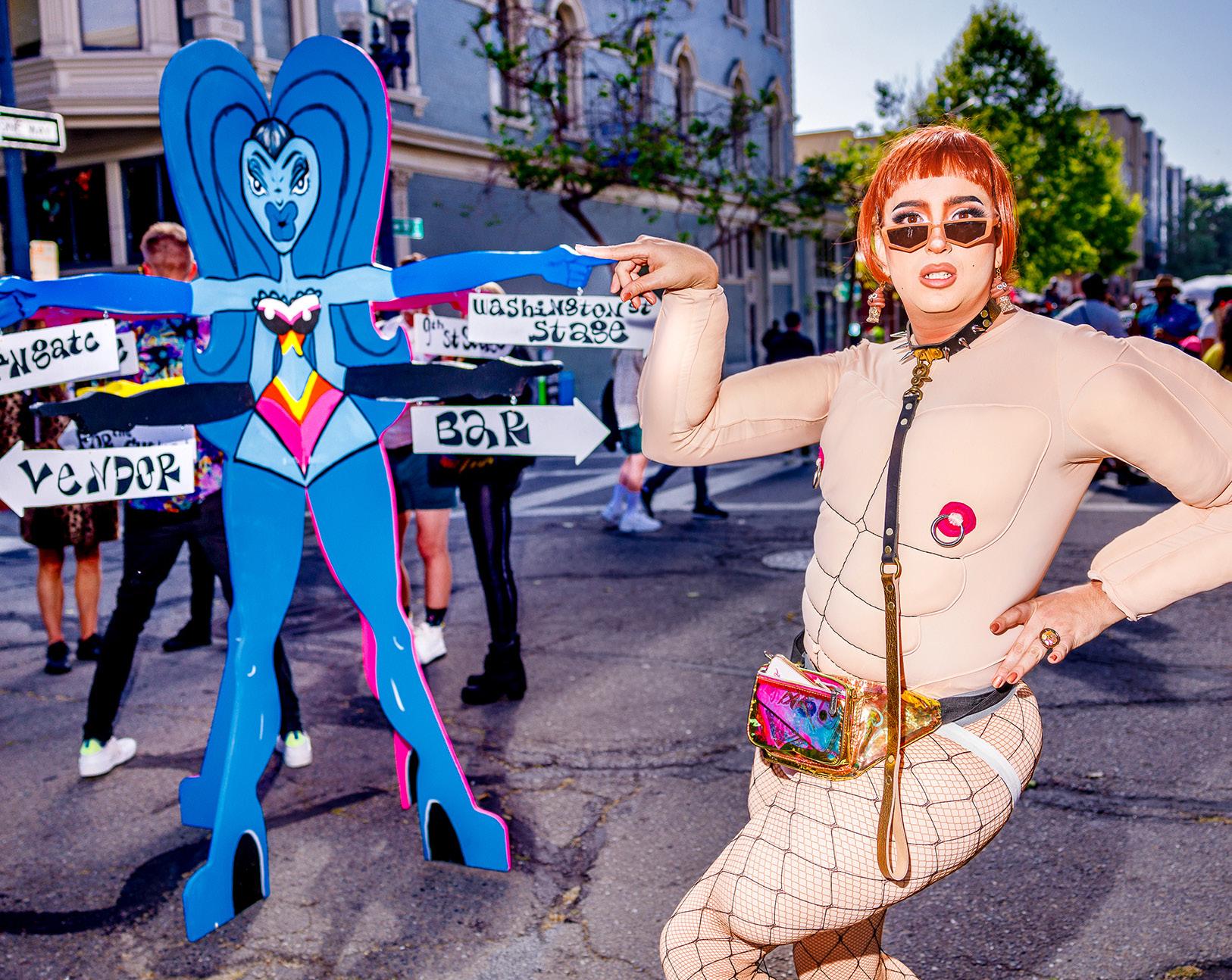

by David-Elijah Nahmod
September is Pride month in Oak-
land and Oakland-based drag artist Mama Celeste and her friends are throwing a party. Christened We Run This, the party, which happens on September 7, and is being produced by Oaklash, promises to offer a plethora of queer and trans performers and DJs, celebrating the diversity that is Oakland.
Celeste explained to the Bay Area Reporter that We Run This will not be affiliating itself with major corporations, as is often the case at Pride parades in other cities. Rather, it will be a production of small businesses in the community, with local homegrown performers who Celeste feels makes Oakland a special place. Celeste wants attendees to feel that they’re seeing themselves represented in the people working, running and performing at the event.
“We are going back to the radical roots of Pride and reminding our community that if they come together, they can make their home a better place,” Celeste said in an interview with the B.A.R.
Though it happens on Oakland’s Pride weekend, We Run This is in no way affiliated with the Pride organization. Celeste hopes to create an ecosystem where Oakland is a more exciting city because there is such a wide variety of events to choose from. She explained why Oakland celebrates Pride in September and not the customary month of June.
“Why not have Pride all year round?” she asked. “June is so oversaturated with Pride events so smaller cities like Oakland would get steamrolled by million-person parades like they have in San Francisco. I want to feel Pride in who I am every day.”
The evening will include a drag

by
for
competition.
“But in the Bay, Militia is best known for kicking and flipping and bucking so hard she might wreck

<< Matteo Lane
From page 13
What can you tell the readers about your colorful ink which is very visible in that video?
I have three tattoos now, all of which I’ve designed. One is Maria Callas, one is Poison Ivy from “Batman,” and the other side is Storm from “X-Men: The Animated Series.”
You are also known for your shopping videos, such as the ones at Trader Joe’s and Mall of America. Do you enjoy in-person shopping as much as you enjoy poking fun at it, or would you rather make all your purchases online?
I’m on a plane and in hotels most of my life. So, when I’m home in New York, the last thing I want to do is go shopping. Sometimes I’ll go to thrift stores if I’m on the road. A comedian friend of mine and I will go to thrift stores. Usually, I’ll just order online. I don’t have that much stuff. Besides furniture that I’ve ordered online, it’s basically groceries and that’s about it.
Do you think you might have a cookbook or memoir, or a combination of both, in you?
I think that’s definitely possible in the future.
When you do a hometown show in Chicago, what do you like best about it?
When I go home to Chicago, it’s great, because all 31 of my cousins come to the show. I get to go to my Aunt Cindy’s house for Sunday sauce. It’s always a good time. I go see my grandparents. By the way, I talk to them every day. It’s not like it’s some family reunion. I talk to them all the time, but it’s always nice to go home to Chicago and see my family.
You’re going to be performing at the Broward Center in Fort Lauderdale in September. Our deplorable
your sprinkler system,” said Celeste. “The girl knows how to party.”
We Run This drag performers are all QTBIPOC and include Bettyie Jane, who Celeste referred to as a “sexy siren.” Also performing will be drag king Tyson Check In, Hera Wynn, and Oaklash co-founder Beatrix Lahaine.
Musical acts scheduled to appear are Lady Ryan, La Femme Papi, Floridawtr, DJ Subeaux, Mama Celeste herself, and TECA.
“TECA closed out our afterparty at the Oaklash Festival earlier this May, and let me tell you it was absolutely lit,” Celeste said. “They’re a powerhouse duo that combines rap, live beat making and DJing in a high energy dance floor experience.”
Volunteers are still needed to help set up the event, work the door, sell T-shirts, collect tips and help clear up the street.
“This is a community-led event, so we’re really looking for all hands on deck to make it happen,” said Celeste. “Folks can sign up at Oaklash.com.”
Celeste invited everyone to attend, pointing out that Oakland is a very special place.
“Oakland is a melting pot,” she said. “It’s the Bay Area’s common room. It’s a place where all sorts of folks from all walks of life come together to push the culture forward. It’s got a history rooted in diversity that is inseparable from its identity. It’s a place where people look out for one another, but they also don’t let you get away with shit because they expect better from their community. It’s the best city in America.” t
We Run This, September 7, 5pm-10pm, Downtown Oakland at 15th and Franklin, $12.51, no one turned away due to lack of funds. www.oaklash.com

governor has gone out of his way to make life difficult for the LGBTQ community here. Is there anything you would like to say to him?
I think he needs to mind his own business. I think we can take that night as a great celebration of how strong our
community is. Let’s just use this as an opportunity to show how strong we are and how we can also laugh at ourselves and have a good time. We can still celebrate life in the face of adversity.t www.matteolanecomedy.com
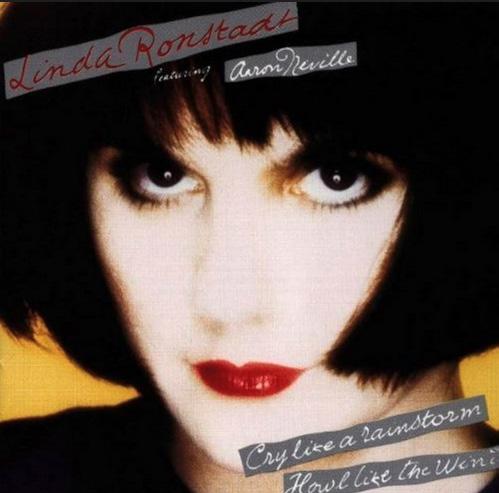
by Gregg Shapiro
An inimitable singer and interpreter of other people’s songs with a singular voice, as well as a few songwriting credits to her name, Linda Ronstadt hasn’t released a new album since 2006 due to being diagnosed with progressive supranuclear palsy. To call that a tremendous loss for music lovers is an understatement. Nevertheless, we do have all the incredible music she recorded stretching back to the late 1960s through her celebrated rise to pop superstardom in the 1970s and continuing through her daring musical explorations of the 1980s (including operetta, stan dards, country, and Spanish language recordings).
Ronstadt concluded the 1980s with 1989’s Grammy-winning album “Cry Like a Rainstorm, Howl Like the Wind” (Iconic), newly reissued in a 35th anniversary edition on translu cent blue vinyl.
The album provided Ronstadt with her biggest hit single in years, the Aaron Neville duet “Don’t Know Much” (previously recorded by Bette Midler in 1983 under the title “All I Need To Know”). Neville also joins Ronstadt on “I Need You,” “When Something Is Wrong With My Baby,” and “All My Life.” Written by Karla Bonoff, “All My Life” is significant be cause it reunited the singer and song writer for the first time since 1976’s “Hasten Down The Wind.”
Tearjerker “Goodbye My Friend,” also written by Bonoff, closes the al bum. “Cry Like a Rainstorm…” is also notable for reuniting Ronstadt and singer/songwriter Jimmy Webb (whom the singer also covered on her 1982 “Get Closer” album), on the


songs “I Keep It Hid,” “Adios,” and “Still Within The Sound of My Voice.” Thirty-five years after it was first released, “Cry Like a Rainstorm, Howl Like The Wind” sounds as timeless as ever. www.lindaronstadt.com
On “Trio,” the Grammy Awardwinning collaborative album that brought Ronstadt, Dolly Parton, and Emmylou Harris together, the threesome covered Linda Thompson’s song “Telling Me Lies”
(from her 1985 “One Clear Moment” release). Thompson, a legendary and longtime fixture on the British folk scene, gained even greater fame via her musical collaborations with her ex-husband Richard Thompson (the
six albums they recorded together includes the highly acclaimed “Shoot Out the Lights” from 1982). She also released a few solo recordings but eventually had to stop singing due to being afflicted with spasmodic dysphonia.
Thompson’s “Proxy Music” (StorySound) is one of the most inventive and wonderful albums of 2024. Beginning with the title, which is a reference to the multiple artists who performs these Thompson originals, acting as her proxy, if you will, including out singer/songwriters John Grant and Rufus Wainwright (performing “John Grant” and “Darling This Will Never Do,” respectively).
The album’s cover, an homage to the 1972 self-titled debut album by Roxy Music, is a perfect illustration of Thompson’s brilliant sense of humor. Other amazing guest artists lending their talents include Thompson’s son Teddy (“Those Damn Roches”), her daughter Kami (“The Solitary Traveler”), Rufus’ sister Martha Wainwright (“Or Nothing at All”), as well as English folk acts Eliza Carthy (“That’s The Way The Polka Goes”) and The Unthanks (“Three Shaky Ships”). Very highly recommended!t lindathompsonmusic.com
“I'm

by Michele Karlsberg
Robert Raasch has always been an author, yet architecture and visual arts were his primary academic path. Poems, phrases, and words are integrated within most of his work. To boot, he wrote a column for the local newspaper as a teenager, and consistently enrolled in writing classes as an undergraduate and graduate student.
A few years ago, Robert began a series of short stories that he later shared with friends and colleagues.
The feedback he received encouraged him to continue until those short stories formed a larger narrative, the framework for a novel. He printed the opus, weighing in at over 500 pages, and asked a trusted writer to browse and see if it had any merit. Their reassurance provided the boost he needed to edit and craft the novel as it stands.
His path to publication took quite a bit of research and self-education.
The thought of the first clumsy query he sent to a literary agent now makes him cringe. Robert will celebrate the publication of his debut novel, “The Summer Between,” in September.
Raised in Northern New Jersey,
Massage>>
& HANDSOME
Very discreet, hung, also friendly and clean - fully vaccinated. In/out. Cedric 510-776-5945. All types welcome. No blocked numbers please.

Rasch is an active participant in 24 Pearl Street and the Fine Arts Work Center (FAWC) in Provincetown, Massachusetts. He divides his time between Florida, New York, and Copenhagen, where he is working on his second novel.
The bittersweet, unsparingly honest coming-of-age saga of Andrew Jackson Pollock brilliantly relates the confining emotions, confusion, panic, heartache, and joy of a young person’s coming to terms with their sexuality and defining their identity.
Michele Karlsberg: What is the importance of writing a comingof-age novel in these times?
Robert Raasch: “The Summer Between” is set in New York City, 1978. Coming-of-age themes remain popular. The concept for the story is inspired by the classic novel “Siddhartha” by Herman Hesse, in which during a distinct period of time, the primary character encounters a multitude of characters and lessons that shape his character.
Through the book’s development as historical fiction in first-person narrative, new generations of readers can understand what life was like close to 50 years ago, before mobile phones, the internet, social media; technology as we know it. Seasoned readers can relish and reminisce in the era.
My primary goal with “The Summer Between” is to tell the story of the struggles and triumphs of one character, Andy Pollock, coming to terms with his sexuality. What I found fascinating while researching the novel was that fluidity was as natural an exploration in 1978 as it is now. Even though many, many more people were ‘in the closet’ fifty years ago, due to the common themes of a coming-of-age story,
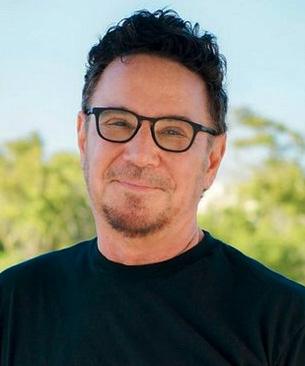
the novel reads as contemporary.
How much of Andrew Pollack’s story reflects yours?
The framework of the novel; the environment, the emotion, mirrors some of own experiences. I used this to build a fictional narrative. The characters and most of the scenarios are either composites, or in most instances, completely from my imagination.
Do the characters Andy and Elena reflect an important friendship in your own life? Only in that I’ve always had good friendships with women. Elena’s unique character and storyline is totally fiction.
Greenwich Village, New York City in 1978 was a lot different than the Greenwich Village of today. Why was it important to set the historical aspect up of the novel?
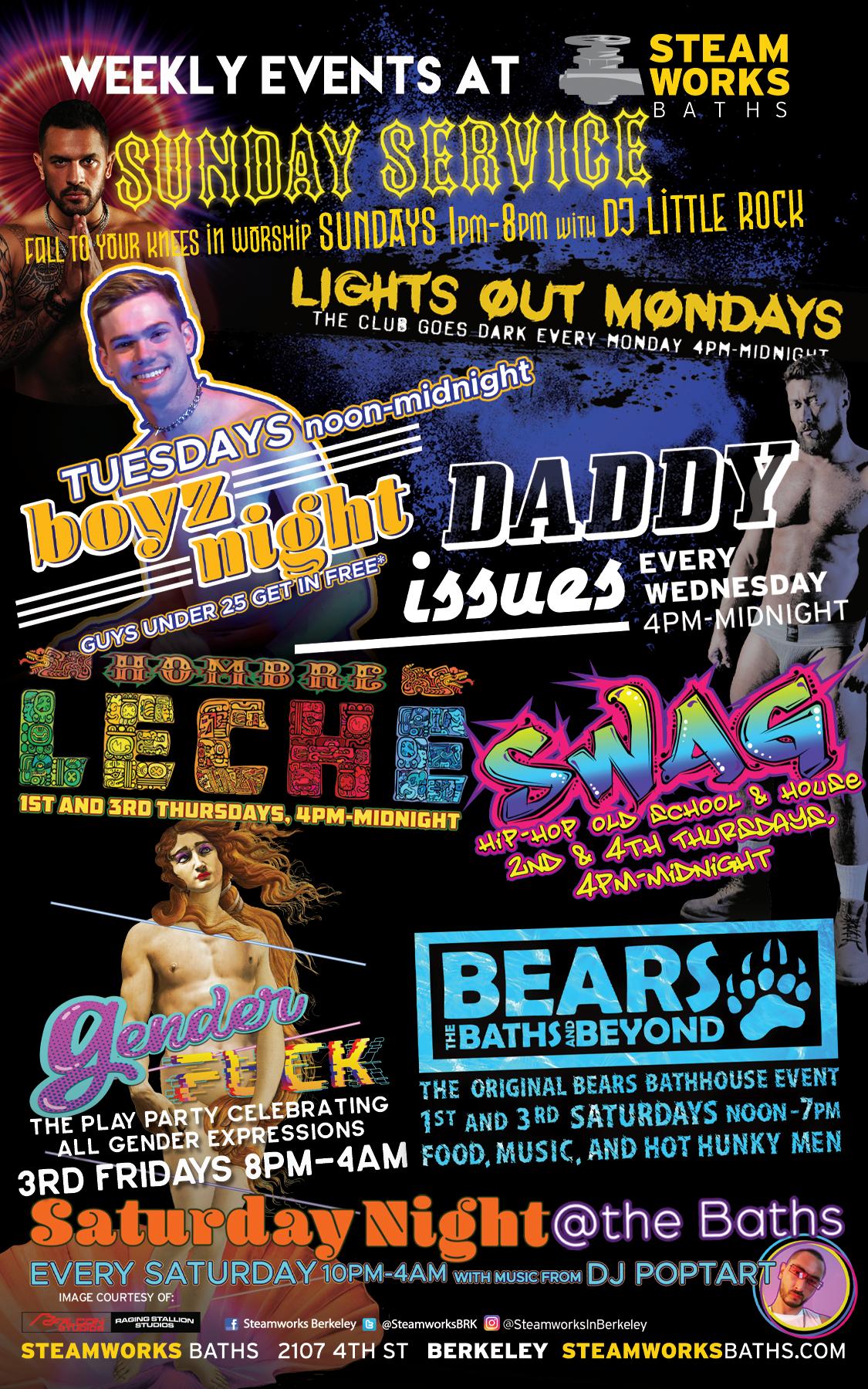

I wanted to parallel Andy’s comingof-age journey with the youth of the Gay Liberation Movement, as it was called in the 1970s. Greenwich Village has long been a bastion of creative, marginalized, mighty people. The history of the community is epic. The architecture and scale, with wandering cobbled streets, hold mystery, tell stories. It seemed compelling to set the story in this often-forgotten era, before the devastation the AIDS epidemic in the 1980s.
Why was writing about the unconventional family of women so important?
I view women as strong and loving with common sense. I wanted to explore a character, Andy, who was raised without a father by this disparate trio: his mother, his Aunt and his grandmother. I was raised with a distant natural father and a step-father. Some of Andy’s emotion ring true, but through fiction I was able to shift
the narrative and explore the type of young man this cadre of women might raise.
Critics noted that the scene where Andy comes out to his mother was so intense, and Andy’s reactions and thoughts to it, really hits a nerve. Was this one of the hardest scenes to write? Yes and no. This scene happens late in the story. At the point I reached this pivot, I grew to know Andy and Lia so well that the dialogue practically wrote itself. The difficulty came with pushing myself to dig deeper and deeper. I very much wanted to get to the heart of their relationship, and the inevitable separation of mother and child as Lia prepares to set Andy free. Coming out to his mother, at his young age, introduced an unexpected curveball to this already ripe transition.t www.greenleafbookgroup.com www.robertraasch.com
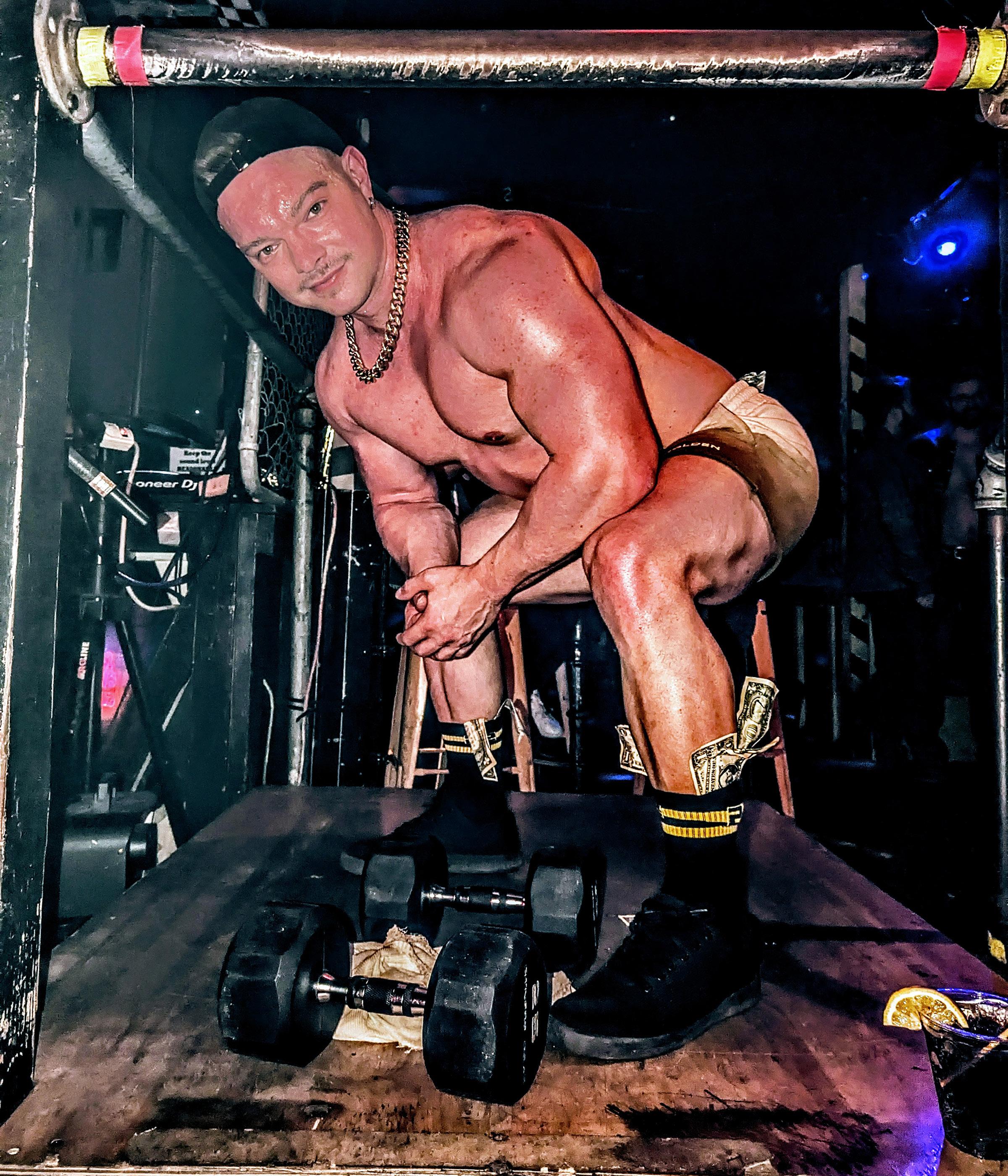
by Laura Moreno
Y
ou may recognize actress Megan Davis. Most memorably, she made a name for herself when she aced the challenging role of Amber Heard in the film “Hot Take: The Depp/Heard Trial” for which she was nominated Best Actress at the Los Angeles Independent Film Festival Awards. She is also featured in “American Horror Story,” “2 Broke Girl$” and “Bones.”
A big surprise to many fans, Megan Davis also sings opera! Her first leading opera role was at the Tulsa Opera when at just 12 years old she starred in “The Cunning Little Vixen.” A few years later, she took the leading role in the theatre production “The Day They Shot John Lennon” at the Edinburgh Theatre Festival.
She majored in Acting and Musical Theatre at the University of Arizona before moving to Los Angeles, where she is also a screenwriter. In recent months, she has just finished an upcoming film with Adam Irigoyen that she wrote called “Hemorrhage.”
This summer, the multi-talented artist released her debut poetry book, “What Breaks Us.” It’s a soulstirring collection that readers of all sexual orientations can appreciate, a love story, but not about loving another person, a story about loving yourself enough to heal and be free.
Originally from Tulsa, a place that’s still hard for her to visit due to its lack of acceptance of LGBT relationships, Davis writes, “I grew up not having a clue how to handle the emotion and the turbulence I felt inside. I turned to alcohol and drugs at a very young age … I had to get sober.”
The answer for her was found in writing, even though she never was one to keep a journal. “I would sit down to write and get my feelings out of myself and onto paper, poetry is what would come out.”
With chapters about heartbreak, broken-ness, attachment/addiction, sex, hate, love, life, friendship, human-ness, freedom, spirituality, empowerment, and healing, “What Breaks Us” is an intensely personal book that chronicles her transcendence from pain and bitterness in an unhappy relationship to perfect clarity of the situation, “I wish I loved myself enough to leave you,” and finally to daring to heal.
Davis writes that she hopes to help the reader in “navigating their own brokenness as they piece themselves back together to ultimately find that love within.”
For one, her poetry wrestles to make sense of “the confusion of her generation,” the first internet generation, “a sophisticated solipsism,” as they all try to connect alone online where they “only have 140 characters to be important.”
It’s impossible to heal a problem that is an integral part of daily life until it can be identified. This is perhaps especially true when dealing with new problems previous generations weren’t saddled with.
“I read Ginsberg and Kerouac and think I understand,
Then I write out a quote and take a screenshot and post it on Instagram... So connected that there’s no connection.”
Social media multiplies many illusions, including about fame, leading people to believe it brings love and acceptance. But experience has led her to powerful, unforgettable insights, even if they are not ubiquitous, “Where were you when you realized that no one truly cares about anyone else?”
A major hurdle is learning to put emotions in perspective, because
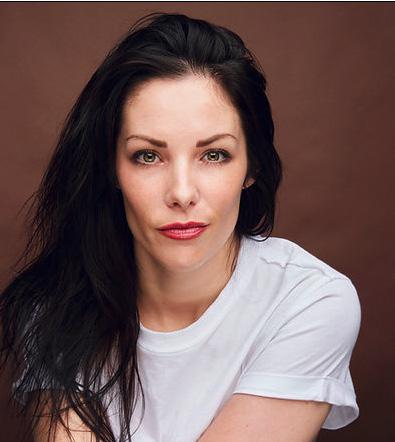
they pass, emotions always pass. Megan Davis writes Odes to Edgar Allan Poe and e.e. cummings, and even takes on Nietzsche’s glar-

ing blind spots, recognizing that his dead God is the priggish manmade God invented to keep women enslaved, a God that in no way re-
sembles the God that created the universe. Like a sage or prophetess, she knows truth is within reach, “And you can always find what’s true,
When mind and heart and soul are in matrimony.”
Even if “The thing she loved so much about the truth was its madness.”
In the chapter “empowerment,” she writes that there is “no better compliment than to be kind-hearted. Be worthy of this honor.”
Excerpt from “What Breaks Us”:
“I like to think of God as a little kid, Free from the need to judge, Able to see everything and everyone for who they are, No less, no better, Because children are free from the insecurities, Free from the need to make that which they don’t understand seem lesser; All they see is beauty, Looking at everything with such wonder, Believing anyone is capable of anything in this world, And even beyond eternity.”t
“What Breaks Us” by Megan Davis, Manhattan Book Group. $19.99 www.whatbreaksuspoetry.com www.instagram.com/meggydavis
